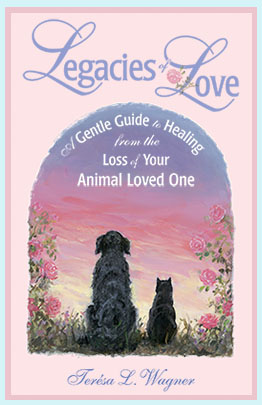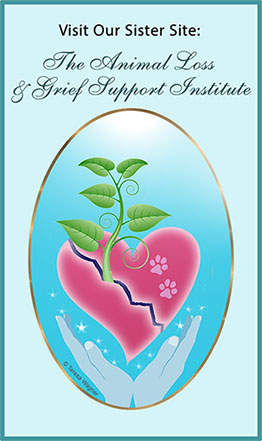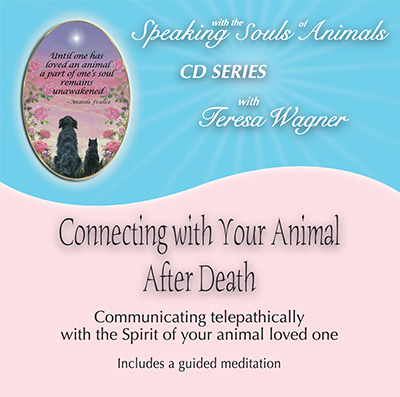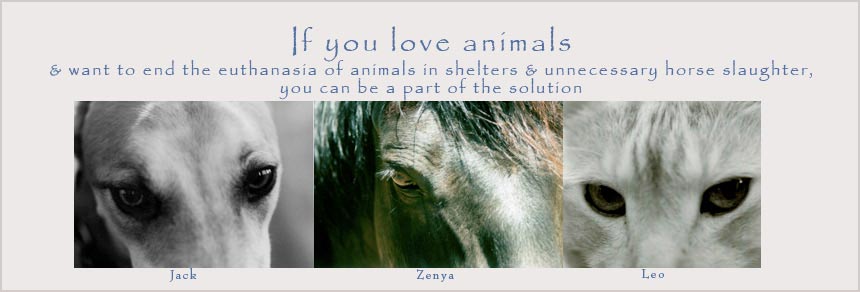Pet Loss Grief Support
Frequently Asked Questions

• Why a program of study instead of just a list of available classes?
• How is the program different from other grief support training programs?
• Who is the program for? Who Should Attend?
• How is the program unique?
• What is distance learning: What is a teleclass and on demand class?
• What technology is needed to participate in the classes?
• Are classes held live or on demand?
• How do I enroll in the program and how do I register for classes?
• Can I take individual classes without enrolling in the certification program?
• Do program participants have access to dialog with instructors one on one?
• What is the total cost of the program?
• What are the requirements for certification?
What is the Purpose of the Program?
To support individuals who are grieving the loss of animal loved ones by:
A) Offering classes to help them cope with and heal from the unique grief of pet loss, and
B) Increasing the number of client-centered, empathy-based grief support practitioners available to support those in grief with tremendous empathy, love and skill.
To contribute to the professional development of pet loss grief support practitioners, with an in-depth, comprehensive educational program for professional competency development leading to a certification of completion for those who wish to build or augment their knowledge and skill base in the field of animal loss and grief support.
To advance the pet loss grief support field with a first of its kind training program which addresses and integrates both psychological and spiritual issues and paradigms of loss and grief healing, and includes the perspectives of the animals themselves.
To promote a deepened cultural awareness and respect for the dignity and legitimacy of human grief from the loss of animal loved ones.
Why a Program of Study instead of just a list of available classes?
Taking individual miscellaneous classes, even in one field, does not provide the same richness and wholeness that occurs when classes in a program are intentionally organized and built upon a common philosophy, code of ethics and guiding principles. This program requires written integration papers which deepens the meaning and professional learning from the classes. It also requires private mentoring which provides students with personalized assistance and support with learning and application to real world work with clients.
The combination of classes (a total of 108 hours of class, or more depending on length of electives chosen), 15 written integration papers, 8 case studies, 6 recorded practice sessions, and 18 hours of one-on-one mentoring with class instructors provides program participants the opportunity to not only build intellectual understanding of loss, grief and grief healing but also a personal integration of the material, synthesizing their own personal and professional experiences with class content.
How is this program different from other grief support training?
We encourage individuals who are seeking training in this field to choose a program that is aligned with:
• The depth of professional competence they are seeking to develop—a survey program that offers an introduction to the issues of pet loss support, or a program that provides in-depth competency development
Numerous classes and programs are available which fit a diverse sets of needs, values and goals. These are described below to help those interested in pet loss grief support training gather information and make informed choices about what is best for them.
• The Association of Death Educators and Counselors (ADEC), the premier international professional organization in the field of death, loss and grief, offers a Certification in Thanatology: Death, Dying and Bereavement focusing on human death and loss. It does not include any specialty training or certification for pet loss grief support. However, we strongly encourage our program participants to take ADEC webinars on grief support as part of their life long continuing education.
• The Association of Pet Loss and Bereavement, offers a pet loss counselor training program and is to be commended for offering the first certification program for pet loss counseling. The certification program includes one class of five sessions, based on a book written by the organization's founder. The program website suggests that concepts beyond psychology in grief support work are controversial and cautions against them.
• Two Hearts Pet Loss Center offers a 15 hour certification program based on the highly regarded work of Alan Wolfelt, Ph.D. Coleen Ellis, the instructor, is a business consultant in the pet funeral, cremation and cemetery industry, and founded Pet Angel Memorial Center, Inc. the first stand alone funeral home for pets, located in Tennessee. http://www.twoheartspetlosscenter.com/
• The American Academy of Grief Counseling (part of The American Institute of Health Care Professionals) offers a Pet Loss Grief Recovery certification program with six topic areas. The program requires reading six textbooks and the successful completion of an exam to become certified. There are no live or webinar instructors, handouts or audio files. However, the person listed as instructor may be emailed if one has questions about the exam. http://aihcp.net/pet-loss-grief-recovery-ce-courses-program/
• There are also a number of new age oriented pet loss classes offered which may provide the animals’ perspective of grief and or new age philosophy about animal death and the afterlife but do not provide grounded counseling skills training. Some new age consultants describe grief as something be avoided because it is a “low vibration energy.” A well known law of attraction author and speaker, Esther Hicks, tells her audiences that when we experience significant loss we should just “focus away our grief and feel joy” because our loved ones have transitioned to a happy existence. She describes grief as unnecessary, a feeling that is merely a programmed response to loss, and that “the perfect amount of grief is none.”
The Pet Loss Grief Counseling Training and Certification Program:
• Focuses specifically on grief from the loss of animals
• Includes 15 classes, 108 hours of class training (or more, depending on class electives chosen), 18 hours of private, one-one-one coaching/mentoring sessions, 15 written class integration papers, and 8 case studies submitted for review (several more are required for individual classes), and 6 recorded practice sessions subimtted for review.
• Encompasses counseling psychology and grief support skills training, as well as issues of spirituality and the animals’ perspectives of death, loss and grief.
• Acknowledges grief as a natural response to loss, one that holds great potential for emotional and spiritual growth and the deepening of wisdom when consciously faced and healed, not denied.
Who is the program for? Who should attend?
The program is open to anyone who has a desire to build or augment their knowledge and skill in the field of animal loss and grief support, and is willing and able to complete the classes, written papers, case studies and mentoring required for a certification of completion.
Participants have included veterinarians and other veterinary staff, animal communicators, healing arts professionals, animal shelter and rescue group workers, chaplains, trainers and behaviorists, pet sitters, dog walkers, and pet loss support group facilitators.
Though prerequisites apply to some of the higher level classes, one does not have to enroll in the program of study to take the classes. Classes are offered in open enrollment. A number of the classes are relevant and appropriate for people who are grieving, or animal lovers who just want to better understand issues of animal death, grief and healing. The classes are not just for grief support practitioners seeking certification.
There are no educational or professional role prerequisites for enrolling in the program. However, participants who are aligned with the underlying values and ethics of the program will likely be much more comfortable with and fulfilled by the program. Before enrolling, those interested in the program are asked to complete a questionnaire which is followed by an informal telephone discussion with Teresa Wagner, program founder.
We encourage anyone interested in the program to read through the program overview, FAQ, certification requirements, class listings, code of ethics and underlying philosophy and faculty listings and then This email address is being protected from spambots. You need JavaScript enabled to view it. with any questions, concerns or readiness to enroll. Your interest and participation is warmly welcomed.
How is the program unique?
There are four ways this program is unique:
1. The program is by intention a holistic integration of psychological and spiritual principles.
People who are grieving can become confused or even stressed by literature or classes on how to cope with the loss of a pet that offer an approach that is exclusively psychologically or spiritually based when authors or teachers entrenched in one view criticize or discount the other view as if it has no merit whatsoever. This can leave emotionally distressed, vulnerable grievers wondering who or what to believe and what might truly help them.
A foundational belief in this program and all of the classes is that the most effective, satisfactory and long lasting approach to healing grief is an integrative and comprehensive one--one that includes both grounded psychological principles and support as well as acknowledgement of and exploration of the spiritual aspects of death, loss and grief which may include holistic healing modalities of interest to and relevant to the person who is grieving.
There is perhaps never a more compelling time in our lives that arouses questions about our spiritual beliefs than the impending or actual death of a loved one. To exclude issues of spirituality in classes about loss and grief would be limiting and incomplete. On the other hand, to assume that strong spiritual beliefs in an afterlife and the ongoing life of our loved one’s spirit means there is no emotional grief work to be done (a common New Age view) and need not be covered in grief healing education would also be a limited and incomplete view. Grief is both an emotional and spiritual process. When grieving we need loving and practical support for our emotional pain as well as support to explore and express our spiritual beliefs and how they may be impacting our healing. Psychological and spiritual principles and resources are presented in these classes, with great respect for both.
2. The actual perspective of the animals is acknowledged and included. Assumptions, generalizations, stereotypes or fixed ideas about how animals experience illness, death, the afterlife are intentionally not part of this program. Instead, dozens of real stories, cases and information obtained directly from actual conversations with animals about their experiences with illness, death, grief and life after death are included, discussed and explored in the following classes:
• Animal Hospice from the Perspective of the Veterinarian, the Animals and their People
• The Animals’ Perspectives of Death, The Other Side and Coming Back
• Animals Grieve Too: Effective Ways to Help Animals Cope with & Heal From Loss
• The Role of Animal Communication for Illness, End of Life Issues, and Healing Grief
This program strongly supports the position that what is referred to as animal communication, or what may be referred to as messages from animals, should be gleaned from actual one-on-one telepathic conversations with individual animals, not assumptions made from archetypal information about an entire species, or generalizations applied to all animals from one conversation with one animal.
3. We teach a client-centered approach, not a technique-centered or specific-belief-based approach to grief support.
Each journey of loss and grief is different, each grievers’ needs unique, and the resources and philosophies most suited to help each of us varies. Based on a client-centered, empathy-based approach to counseling, healing and education, information is shared and exercises offered in the classes to support participants to explore, clarify, be at ease with and make decisions about their own values and beliefs. This program does not teach, impose or suggest that any particular set of beliefs about end of life choices, animal death or the afterlife for animals is the only one or the right one.
A foundational belief in this program is that choices and beliefs surrounding end of life and grief are deeply personal and sacred, and, that it is highly inappropriate and unethical for anyone supporting others through loss to attempt to impose their personal moral beliefs.
What we teach in the skill based classes in grief support is how to compassionately and non-judgmentally support others’ values and decisions and their explorations thereof, however similar or different others’ values may be from our own. See the Code of Ethics and Guiding Principles.
4. The program is comprehensive and in depth
Classes in the curriculum cover the journey from end-of-life hospice care and decision making to physical death, understanding and healing our own grief, effectively helping others through loss, and understanding the animals‘ perspective throughout each of these experiences. The full program includes over 76 hours of class time, the time required to prepare 8 case studies, 17 mentoring/coaching sessions, and written integration papers for 15 classes. Classes have been designed to cover the topics beyond a superficial review, and also include a focus on practical application and resources for continued value and tools beyond the completion of a particular class.
What is Distance Learning?
The established trend of distance learning (online studies, teleclasses, webinars, on demand teleclasses) has changed the face of educational instruction throughout the world. Though nothing will ever replace the unique and special intimacy that is part of in person workshops, distance learning allows us to participate in far more learning opportunities due to reduced time and money required for travel. Animals in our Hearts is grateful for the technology that allows us to come together so easily to focus on learning how to help heal the grief of those whose hearts are broken.
What is a Teleclass? Teleclasses are live conference calls via your telephone. Registered participants receive a call-in number and password in order to gain access to the virtual classroom at the scheduled class times. Please note that our teleclasses utilize a conference call phone number based in the United States which is not a toll-free phone line. International students are welcome, and sometimes are able to call in via Skype. We have had many class participants from other countries, including Canada, South America, Australia and Europe.
All the teleclasses are digitally recorded which allows participants to listen to every class session even if they cannot attend a particular session live. Participants receive digital recordings of each class session in MP3 format at the completion of each class which can be downloaded for listening multiple times, at any time in the future.
Class handouts are provided in advance via an internet link for all who take part in the class.The call-in phone number, plus links to handouts, are provided via e-mail within a few days of the start of each teleclass. Sometimes, the handouts are sent at least a week in advance of a class when there are assignments for pre-class reading or exercises.
During a live teleclass, all class participants are able to hear the instructor, but participants are asked to mute their phones so that background household noise does not disturb the class. However, during question and answer periods and during the discussion of class exercises, those who choose to speak un-mute their phones so they can participate verbally and be heard by the group.
What is an On Demand Class? Taking a class on demand means that participants complete a class at at their own pace rather than attend a live class at a prescribed time. On demand classes allow participants to listen to the audio, read the handouts and complete any class exercises The registered participants of on demand classes receive the same digital recordings of the audio portion of the classes and all the same handouts.
The audio recordings are from live teleclass recordings, so the benefit of hearing questions and discussions with the instructor as the material is being covered with participants remains. Also, when taking any class for credit, including on demand versions, as part of certification, the required private, one on one coaching session following each class allows the participant to ask personalized questions of the instructor.
What technology is needed to participate in the classes?
• A telephone, preferably a land line for optimal sound during the classes, is needed to listen to the audio portion of the classes when taken live. The call in numbers are not toll free--participants are responsible for any long distance charges.
• A computer, internet connection and an email account to receive all correspondence for the classes and program.
• A printer to print out handouts. Though handouts can also be viewed on screen, some of the class handouts include exercises which are best completed on printed handout pages.
• Participants must know or learn how to download PDF documents (for the handouts) and MP3 files (for the class recordings) on one’s computer. Because every computer is different, every operating system is different, and because we are not tech experts at Animals in our Hearts, we are unable to coach individuals on how to operate their computers for these functions. We strongly advise that you do the following before taking any of the classes:
1. Download Adobe Reader (which is free) if you don’t already have installed, which will allow you to open and read any PDF document.
2. If you are not familiar with how to download and find MP3 files on your computer, please seek help from a tech savvy family member, friend or computer consultant familiar with your computer.
Are the classes held as live teleclasses or on demand?
Both! The scheduling of live classes varies each quarter (please check each course description for scheduled classes), with almost all classes available on demand. The availability of on demand participation allows you to take classes at your convenience. All on demand classes include the full recording from a live class and all handouts.
How do I enroll in the program and how do I register for classes?
Enrollment in the certification program:
Individuals interested in certification are asked to complete an application questionnaire followed by an informal telephone meeting with Teresa Wagner to discuss the issues in the questionnaire, your questions and concerns about the program, and how your needs, goals and current and or planned work can be supported by the program.
A $25 application fee is due before the telephone meeting. When you’ve completed the application questionnaire please email it to This email address is being protected from spambots. You need JavaScript enabled to view it.. When we receive it, we will confirm receipt, email you a link to pay the $25 application fee and will schedule the phone meeting.
If after the phone meeting you are ready to enroll in the program, the next step is to register for one the core required classes (which are the first three classes listed on the Class Listings page) followed by completing a Written Class Review of that class, followed by a private coaching/mentoring call for the class. This sequence—completing a class, writing and submitting the Written Class Review and having the phone coaching/mentoring call—is repeated for each of the 15 classes which must be completed for certification.
Any classes taken before the application submission and telephone meeting can be applied to credit for certification.
However, Written Class Reviews and Coaching/Mentoring sessions must be taken for all classes toward certification, including those taken before the application is completed and the telephone meeting.
Registering for classes:
Simply click on the class title of your choice in the Class Listings section and you will be taken to a detailed description page for that class. On that detailed class description page, (click here for an example) you will see a table listing Length, Dates Offered, Cost and Register/Purchase, etc. There will be a link in the Register/Purchase line to make payment for the class. You may also This email address is being protected from spambots. You need JavaScript enabled to view it.for directions on how to pay by check.
Immediately after making payment, you will receive confirmation of payment/registration.
If you are taking the class on-demand, you will also immediately receive links to the class audio recordings and handouts.
If you are taking the class live, approximately one week before the class date you will receive cal- in numbers for the live class and a link for the class handouts.
Can I take individual classes without enrolling in the certification program?
Absolutely! All classes are open enrollment and can be taken by anyone.
Do program participants have access to dialog with instructors one on one?
Yes. Because this is a distance learning program, it is important to Animals in our Hearts that there is personalized contact between program participants and class instructors, beyond Q & A during classes. This begins with the application questionnaire follow up phone conversation and is followed by the one hour coaching and mentoring private sessions after every required and elective class to continue personalized communication and support regarding class content, cases or issues the class participant wants to review. Including the application follow up phone conversation, there are 18 hours of one on one private time with instructors.
What is the total cost of the program--including class tuition fees and coaching & mentoring session fees?
Class fees vary with each class, dependent primarily on class length. To view fees for a specific class, please see the class title line in the Class Listing section. The majority of classes are priced at approximately $25/per class hour, which is the lower range of market rate ($25-$60/per class hour) for non-profit and healing arts teleclasses and webinars.
TOTAL COST OF PROGRAM $5,447.00
• Fees for 10 required classes: $ 2,190.00
• Fee for 11th required class (a choice of one of three holistic classes): $ 99.00
• Fees for 4 elective classes (assumes 1@ $48, 2@ $99, 1@ $112—this could
fluctuate slightly
depending on the electives chosen) $ 358.00
• Fees for 18 mentoring sessions (16@ $150 and 2@ $200) $ 2,800.00
Total costs include:
• 15 classes (live or on-demand) with digital audio files and handout PDF files for each
• 109 class hours (may fluctuate slightly depending on length of electives chosen)
• 1,259 total pages of handouts (1,001 from required classes and approximately 258 from elective classes depending on electives chosen)
• 18 hours of private, one-on-one mentoring/coaching sessions with class instructors to discuss the required Written Class Reviews, Case Studies, Recorded Practice Sessions and any questions and concerns about the class content, and/or issues with actual client cases.
PAYMENT OPTIONS
A. PAY AS YOU GO:
Class fees are paid at the time of registration for a particular class. Mentoring/coaching session fees are not due until the program participant completes a particular class, the written class review, and requests for scheduling a private coaching and mentoring session. Class and mentoring fees may be paid by credit card or check.
B. DISCOUNTS FOR PRE-PAYMENT OF TOTAL PROGRAM COST:
• 7% discount/savings if paid by credit card: $381.29
Total cost for program with 7% discount: $5,065.71
A 6 month deferment on payment with no interest is available from Paypal at time of payment.
• 10% discount/savings if paid by check: $544.70
Total cost for program with 10% discount: $4,902.30
Three separate checks of $1,634.10 may be sent over 6 months, the first of which must be received before the first class registration.
To make one of the discounted options for pre-payment of the total program cost, please This email address is being protected from spambots. You need JavaScript enabled to view it. indicating your choice of credit card or check payment, and we will send an invoice with the amount due.
What are the requirements for certification? Click here for full information
Code of Ethics & Underlying Philosophy
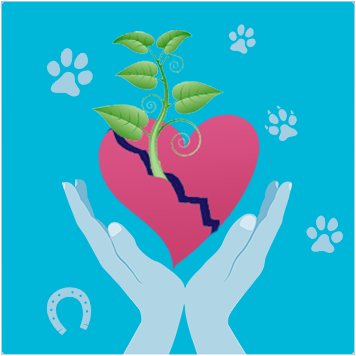
Ethics are far more than a list of rules.
Ethics are the principles adopted by practitioners
within a field to translate the desire to serve
into the profession’s evolving wisdom
about how best to serve.
~ David Feinstein, PhD and Donna Eden,
Ethics Handbook for Energy Healing Practitioners
The ethics in a professional field of practice are what compel us, motivate us and guide us to offer and conduct our work for the clients we serve with the highest possible levels of integrity and professionalism. The ethics described below are the cornerstones of the Animal Loss and Grief Support Professional Program of Study. Those certified in the program commit to adhere to these ethics and guiding principles, to use them as a foundation of their work and to guide their conduct as they support those who grieve the loss of animal loved ones.
The Code of Ethics and Guiding Principles:
Conduct with Clients
Self Awareness and Development
Confidentiality, Privacy and Informed Consent
Conduct with Others
Four Elements of Effective Facilitation of Healing
Client-Centered, Empathy-Based Approach to Helping
CONDUCT WITH CLIENTS
Sound ethical practice is good counseling practice,
and good counseling practice requires sound ethical practice.
~ Louis A. Gamino, PhD, Ethical Practice in Grief Counseling
1. Holds the welfare and the healing process of the grieving client as their abiding concern, taking precedence over favored healing techniques, tools and philosophies, specialized training, knowledge, and theories. Above all, they strive to do no harm.
2. Recognizes, accepts and acknowledges that grief is indifferent to the species lost, and is exceedingly careful to never condescend, belittle or trivialize, in any way, the death of an animal, the importance of the role an animal may have in a person’s life, or the person’s grief response. Respects and accepts that the following beliefs are held by many people who reach out for grief support when their animals die:
• The life of an animal is as important and significant as the life of a human.
• The death of an animal is as important and significant as the death of a human.
• The grief of those who mourn the loss of beloved animals is as important and significant as the grief of those who mourn the loss of beloved humans.
3. Recognizes and acknowledges that grief, including anticipatory grief, is both an emotional and spiritual experience and that both of these aspects need to be considered, understood and supported when helping those in grief.
• Careful not to encourage clients, directly or indirectly, to ignore or favor either a psychological or spiritual approach to grief healing with comments, strategies, tools or resources that indicate bias toward only one of these aspects having legitimacy or importance. Is comfortable with both of these aspects of grief and grief healing, and is prepared and able to support and acknowledge wherever the client is in regard to these aspects with tools, resources or referrals when appropriate and relevant to the clients’ values.
• Holds a basic understanding of psychological principles of loss, grief and counseling, as well as various spiritual perspectives of loss and grief.
• If practitioners’ original education or strongest orientation about death, loss and grief is psychology based, they take the time to learn more about and are open to metaphysical, religious and other spiritual orientations and beliefs about loss and grief. If practitioners’ original or strongest orientation about death, loss and grief has been metaphysical, religious or otherwise spiritually based, they are open to and take the time to learn psychological principles about loss and grief and basic counseling psychology skills. Commitment is made to support the whole person which acknowledges all aspects of healing grief. Remains open minded and integrative in their approach, and are not reluctant or unwilling to combine love, compassion, psychology and spirituality as appropriate and relevant to the client as they support others.
4. Recognizes that effective grief support is founded in compassion and love and that this cannot come from the ego or from the intellect, but from an open heart. Understands that while having a solid intellectual understanding of loss, grief and healing paradigms is important, during client contact, communication from the heart must come first--exuding compassion, love and empathy to create a genuine healing presence. Our intellectual understanding of loss, grief and healing is an important source of preparation and guidance for practitioners as we support our clients, but if this is unaccompanied and not preceded by compassion and love, our support will be abstract, and likely to be perceived as cold and even useless to those in pain.
5. Recognizes that the role of a grief support practitioner or any healer is a sacred trust and that the responsibility to create a place of safety for the client is a critical one.
• Creates a healing presence by exuding genuine warmth, care, compassion, nurturing, acceptance, respect, non-judgment, encouragement, the expression of empathy and affirmation of the client’s potential for healing and wholeness.
• The spiritual maturity and poise of any helping practitioner, and their ability to create a healing presence for clients, is heightened when they hold the space to help the grieving person or animal find their own unique way to healing--not to push, drag or badger them, however lovingly, into following a path, beliefs, or resources in a way that we think is best.
6. Consistently sets and maintains energetic boundaries as an essential aspect of client contact:
• Energetic Clearing: To protect clients, practitioners commit to a practice of clearing themselves and temporarily putting aside all preconceived ideas, personal values and beliefs about animals, loss, grief and healing while working with clients to prevent possible biases and filters from distorting what we perceive and hear from clients.
• Energetic Protection: To protect themselves and to maintain healthy energetic integrity, practitioners commit to a practice of using techniques for energetic protection to prevent potential overwhelm and compassion fatigue from ongoing exposure to clients’ energy and pain. Energetic protection allows practitioners to be present with intense emotions of others, to feel and to express compassion for them without taking in their pain.
7. Expresses empathy throughout client contact, in an active attempt to understand the clients' feelings, thoughts, stories and experiences from the client’s frame of reference. Listens first, using empathic inquiry to help clients explore their own inner world, and holds back any impulses to immediately “fix” the client’s pain, interpret or analyze. Is exceedingly careful to express adequate levels of empathy before offering any strategies, tools, ideas or healing techniques.
8. Scrupulously refrains from imposing personal values and beliefs.
• Does not use the professional relationship with the bereaved to proselytize own spiritual, religious, or personal beliefs and philosophies.
• Sensitive to the emotional vulnerability, sometimes acute, of grieving clients, which can make them more susceptible than usual to others’ opinions and suggestions, and realizes that it is both disempowering and potentially emotionally harmful to impose one’s own moral views onto clients.
• Steadfast in supporting clients to clarify what is true for them regarding personal and spiritual beliefs and values.
The relationship between clients and helping professionals involves a sacred trust in which clients must feel safe in knowing that helping professionals are there to support them in finding their own way, not to preach or proselytize. To violate this trust by attempting to make clients hold beliefs or take actions based on the practitioner’s values is one of the most egregious and unethical things that anyone in a grief support role can do, even when done unintentionally.
9. Scrupulously refrains from imposing solutions, strategies, tools or healing techniques.
• Offers, rather than imposes, proactively providing grievers a choice about whether they want to learn about or use the tools and techniques that practitioners have available.
• Trusts the wisdom of the client to make such choices on their healing journey, and supports their choices, even when they may choose to not follow an idea, a path or use a tool we believe is best for them.
10. Recognizes that language is powerful and can support or offend. Maintains an awareness of how a practitioner’s choice of words, verbal and written, can infer, even subtly, that a particular belief or view is the “correct” one that grievers should hold. Citing platitudes or inserting personal beliefs into conversations or written materials about death and grief can be inappropriately imposing--even without intention--and can rob or prevent grievers from clarifying or establishing their own beliefs or insult them if stated practitioner beliefs are different from grievers’ beliefs. Examples:
• After they die, our pets are in peace, waiting for us: Implies a Christian, Rainbow Bridge belief that animals do not have a soul journey separate from their human loved ones, but “wait” for their humans to die. This phrasing also implies that reincarnation is not an option, or does not exist, when reincarnation may very well be part of a griever’s belief system.
• There is no death, only a change of worlds: Implies a metaphysical view of death. Unless clients speak in these terms, making it clear that this is their belief, to speak these words to a griever is akin to telling them their animal didn’t really die and infers that perhaps there is no need to grieve.
• Terms for clients' animals: Asks clients what words they use or prefer when referring to their animals, rather than assuming they are comfortable with terms such as bridge babies, pet, fur babies, babies, friend, companion, etc. Understands that it can be very easy to insult a griever when using terms that are not aligned with their values. Until it is clear what words are used and preferred by clients, using terms that are belief system neutral, such as beloved animal or animal loved one are far less likely to insult or upset a griever.
11. Communicates Non-judgment.
• Accepts others' emotional responses to loss and grief, however similar or different their responses
may be from ones own.
• Understands that grieving clients will express a wide range of responses to their loss, from stoic denial to hysterical crying, and accepts and supports all responses. Refrains from labeling any response as normal or not normal.
• Respects the values and spiritual beliefs that clients have about animals, death and the afterlife, whether they are similar to or different from their own values and beliefs, and refrains from proselytizing or attempting to impose one’s spiritual beliefs onto clients or students.
• Respects and maintains a non-judgmental attitude about any services, healing activities or techniques that clients may use to help them with their loss and grief beyond what the practitioner offers the client.
12. Creates and communicates clear logistics policies and boundaries.
It is the responsibility of the practitioner to establish, initiate and maintain clear communication about policies and boundaries. Clear boundaries should be stated verbally and on any websites or print literature to help prevent uncomfortable conflicts (hurt, anger, confusion), which can easily occur when expectations are not clear.
• Fees for services, length of service (for private consultations, group sessions or other modalities such as workshops), and policies regarding when payment is due, in what form, and cancellation policy, etc. should be clearly stated in writing before services are scheduled and provided.
• Time frames of availability to support clients by phone, email, postal mail and/or in person should
be very clear, including when support is available for scheduled sessions or groups, and when it may or
may not be available outside of scheduled sessions or groups. Even when grief support is offered informally,
it is important to be clear with time available for support. It is common for people in crisis to not be as grounded as they may usually be, which may contribute at times to having
unrealistic expectations of 24/7 access to support practitioners. Be clear and honest about time available, and in what form. Resources for alternative support should be provided for clients who
may need support when the practitioner is not available.
• Electronic communication: Boundaries about availability for email, text or social media
communication should be made clear to clients.
• Guidelines or ground rules for support groups should be made clear to all attendees.
• If and when a client refuses work within clearly stated policies or boundaries (i.e., continually
questions, resists or violates them), it is ethically acceptable to decide to not work with the client. In
such circumstances, it is important to explain why it is not constructive to work together.
13. Cognizant of scope of practice .
• Recognizes the limits and boundaries of professional expertise in meeting client needs, and
provides services only within the limits of one's own competence and training.
• Refers clients to other sources of help that are beyond scope of ability/expertise. Has relevant and adequate resources available for referral, which are screened to ensure the improbability that referral sources would trivialize the death of animals or grief from the loss of animals.
• Never diagnoses, unless a licensed psychotherapist or medical doctor.
• Does not represent self as having qualifications beyond one’s training and expertise. Uses appropriate terms to represent one’s work. Graduates of the Animal Loss and Grief Support Professional Program of Study, unless they are licensed psychotherapists, should not represent themselves as a psychotherapist or therapist. The scope of education and training in the Animal Loss and Grief Support Program of Study does not prepare participants to be therapists, but to be grief support practitioners and counselors involving a single focus: short term support for those who are grieving the loss of an animal loved one, vs. longer term, often multi-issue focus of psychotherapy requiring graduate degree training as well as licensing in some U.S. states and other countries.
14. Regarding end-of-life decisions and client reflection upon past decisions:
The sacredness of end-of-life decisions, the transition of death, and the diversity of each person’s spiritual beliefs and decisions must be deeply honored. The grief support practitioner recognizes and acts on the serious responsibility to honor and uphold the right of clients to clarify and embrace their own opinions and beliefs, and to make their own decisions regarding end-of-life issues, unimpeded by a grief support practitioner’s personal values. Proselytizing or, in any way, attempting to impose one’s own personal values and beliefs onto emotionally vulnerable clients at such a time is an egregious ethical violation.
It is the responsibility of grief support practitioners to:
• Help clients clarify what they feel, believe and ultimately decide what is best for their animals in their unique circumstances regarding all decisions about euthanasia or unassisted death.
While practitioners may have important and relevant information (such as medical information
from veterinary professionals or the thoughts and feelings of the animal from a professional animal communicator) or relevant resources to share with clients, these should always
be shared in the context and spirit of supporting clients to make their own decisions. (An exception to this may be when a veterinarian directly and strongly encourages treatment to save a life, reduce pain
and suffering or advises euthanasia to end acute suffering that can no longer be treated).
• Communicate respect for clients’ values and decisions regarding end-of-life choices
regardless of whether the clients‘ values and choices are similar to, or vastly different from, the choices they would
likely make or have made themselves.
• Offer empathic, non-judgmental emotional support to clients as they face and explore
the options to assist their animal in having as peaceful an end-of-life and death experience as possible.
Practitioner support must be steadfastly unconditional as clients make such challenging decisions, or
reflect upon past decisions, regardless of whether a client’s choice is, or was, for an unassisted
death or euthanasia.
15. Serves in an advocacy role to help clients maintain or reclaim their own truth about their relationship with animals, their loss and their grief.
There are individuals in various professions (clergy, mental health professionals, veterinary professionals, animal communicators, healing arts practitioners, authors of books on animals, death and the afterlife, etc.) who strongly assert and impose their opinions onto clients about the limits of how much we should love animals (i.e., not as much as humans); what happens when animals die, how they should die, how we should grieve and for how long; whether animals have souls, and what does and does not happen for animals after death; etc. When such opinions are presented as if they are ultimate truths--whether done so forcefully, gently or charismatically--to emotionally vulnerable, grieving humans, sadly, some of these people begin to question their own beliefs and truth and take on the dogma presented to them.
Without criticizing the source of the dogma, when clients describe feelings such as confusion, unease, doubt, a sense of unworthiness, guilt or anger in response to other professionals telling them that something they believe about animals, how they experience their relationship with animals, or how they’ve handled their grief is somehow wrong, it is the grief practitioner’s job to empower the client to step back to explore, clarify and seek to be at peace with what is true for them--regardless of what any other expert, authority, teacher, etc. declared to them as a universal truth.
The role of a grief support practitioner is to always seek ways to empower the client in their healing process, and is never, ever to tell clients what to believe.
16. Handles termination of relationship with clients with professionalism and sensitivity
If practitioners determine that they are no longer able to capably serve a client, or for any reason is no longer be available to work with a client, they provide appropriate referrals to ensure that the client has continuing care available. It is especially important with longer term clients to ensure that they do not feel abandoned.
In situations where a client cannot or will not work within practitioners’ stated policies or boundaries (i.e., continually resists or violates such policies or boundaries), an ethically acceptable choice may be to decide to no longer work with the client. In such circumstances it is important to constructively and diplomatically explain the reasons for terminating the relationship.
17. Romantic or sexual relationships with clients, students or their significant others is unethical as it could reasonably be expected to undermine and impair the objectivity, perspective or effectiveness of the grief support practitioner, and risks potential exploitation and emotional harm to the client or student.
SELF AWARENESS and DEVELOPMENT
18. Develops the emotional strength and maturity needed to be present with intense pain of others.
Demonstrates a willingness, capacity and ability to tolerate and endure the emotional intensity of client stories, emotional pain and trauma, including descriptions of traumatic accidents, illness and death while remaining calmly and fully present.
Regardless of how intense or extreme the client’s story, emotions or demeanor, practitioners consciously seek to, even in their mind, refrain from:
• Recoiling with a sense of helplessness and sympathy
• Denying or diminishing the pain or trauma of clients as a means to cope with or escape from one’s own painful reaction to it. When we acknowledge the depth of someone else’s pain we need the courage and strength to face our painful reactions to it.
• Feeling compelled to help clients swiftly come to terms with or reconcile their pain because it’s too
uncomfortable to closely observe, be witness to, listen to and be present with ongoing pain.
• Becoming so enmeshed in the client’s pain that energetic protection boundaries are forgotten and the practitioner takes in the client’s pain.
Develops and draws from a well of courage and strength to face and acknowledge the depth of another's pain, as well as one’s own painful reaction to it.
Maintains a healing presence and emotional poise with clients, regardless of the intensity of their stories and emotions, listening and communicating empathy, compassion and love.
Strives to be continually aware of own feelings elicited by client stories and descriptions of loss.
Seeks support for oneself, which may include mentoring, whenever there is any degree of overwhelm, painful feelings, or residual upset from a client story or interaction. Is self-aware enough to discern the difference between upset for the client and upset for own unresolved feelings or issues which may be triggered by a client’s story or pain.
19. Integrates own loss experiences.
• Thoroughly tends to the healing of one’s own losses, including any unresolved issues regarding past losses that may still need healing attention. Seeks help and support as needed.
• Understands that one's own experiences with animal death, loss and grief--even the most profound or transcendant healing experiences--do not equate to a universal truth for all. As practitioners, realize that own experiences provide an important, personal baseline of understanding and shared experiences with clients. However, this does not include the assumption that what helped us will help everyone. Understands that it is vitally important to refrain from making generalizations to others about animal death, loss and grief created from one's own personal experiences.
20. Strives for intimate self-awareness.
• Continually explores and attempts to understand own reactions to and experiences with death, loss, grief and healing, and to clarifies one’s values and beliefs about life after death.
• Recognizes that on-going attempts for honest, in-depth, accurate self-awareness facilitates personal learning, healing and growth. Also recognizes that it heightens awareness of how personal experiences, values and beliefs impact one’s thinking and professional work in grief support. Is conscientious about self awareness to prevent unconscious generalizations based on personal experiences and inappropriate imposing of personal beliefs.
21. Commits to continual professional education, learning and growth.
Diligently attempts to increase knowledge and enhance skills in the field of animal loss and grief support through classes, reading, mentoring, conferences, etc. Continuing education is life long.
22. Seeks mentoring help from teachers or more senior colleagues
Throughout career seeks guidance, feedback and counsel for difficult cases, challenging situations, puzzling client issues and ethical dilemmas from mentors, senior colleagues or trusted, respected peers in the case of senior, long-experienced practitioners.
Initiates such coaching and support sessions in an effort to continue to integrate real-world learning with the perspective of those with more experience to both enhance their own career satisfaction and to provide the highest level of competent and ethical service to clients.
CONFIDENTIALITY, PRIVACY AND INFORMED CONSENT
23. Respects privacy and confidentiality of client information
• Regardless of the specific role of a grief support practitioner, all information about and from clients, including
name, contact information, and information about client’s loss and/or consultation/case details must remain private and confidential.
• Informs clients of confidentiality policy verbally and in writing.
• Safeguards all files and written information about clients for privacy; any disposed files are shredded.
• When referring to client stories and cases in teaching, presentations, writing, or in mentoring and coaching sessions, does so only when receiving client permission and or completely disguises the information to maintain client privacy and confidentiality.
• Does not discuss clients by name or in any recognizable manner on websites, in social media, with peers, in the community, with friends, family, or anyone else.
• Regarding placement of client information in practitioner database: asks permission before entering client information in a newsletter list; never sells or gives away client contact information; if sending mass emails, client email addresses are kept confidential by entering them in the “bcc” [blind carbon copy] where recipients will not be able to view the addresses.
• A deceased person’s right to confidentiality does not expire at death.
Exceptions to Confidentiality (from Association of Death Education and Counseling*)
1. Client authorized release of information
2. Danger to self
3. Danger to others
4. Neglect or abuse of children or vulnerable adults [or animals--addition by Teresa Wagner]
5. Complaints or litigation against counselor
6. Litigation claiming pain and suffering
7. Court-ordered or statutory requirements to disclose
8. Requirements of third-party payers
24. Solicits client permission and informed consent
.
• Clarifies services, approach and processes to be used during a session. Before consultations/services
are scheduled and provided, practitioners inform clients with a full and complete description of how
they work, any particular techniques they may use, a range of reactions clients might expect from the
work, what results may occur or not occur from the work and how the practitioner will support the client.
• Obtains permission before using specific techniques. Regarding specialized techniques or healing modalities in which the grief support practitioner has training and expertise, they must be used only
with the permission of the client and should be offered only when it seems apparent that they fit the needs and goals of the client.
• If the grief support practitioner is also a professional animal communicator, or has telepathic animal
communication abilities, the practitioner refrains from connecting telepathically with the client’s animal unless and until the client specifically requests and or grants permission for this service.
Having a conversation with a client’s animal, including after death, without the client’s request and/or permission is an egregious violation of client expectation of privacy and professional boundaries.
• Audio or video recording: practitioners may not record sessions with clients without informed consent
which must be in writing.
From the Association of Death Education and Counseling*:
Informed consent is based on the ethical principle of autonomy, respecting client’s right to self- determination. Repetitive interplay of permission-seeking by counselor and permission-granting by client that honors client autonomy at each juncture in the therapeutic process.
Two consensual elements:
• Full disclosure by practitioner of pertinent information client needs to make a reasoned decision
• Free choice by the client to proceed, without pressure or coercion
Consent is ongoing and revisited throughout the cycle of care, not a one-time event ratified by signing forms or by saying yes one time to receiving a healing modality.
* http://www.adec.org/adec/Main/Discover_ADEC/Code_of_Ethics/ADEC_Main/Discover-ADEC/Code_of_Ethics.aspx?hkey=6ef825fd-775c-4ae8-9090-8ed3ca2c5cd1#Served
25. Maintains a respectful, professional and considerate demeanor and behavior in relationships with clients, students, mentors, professional associates and peers at all times, including when a conflict or difference of opinion exists.
26. Regarding the use of others’ work:
• Respects the energy and efforts of others that was used to create proprietary work by never plagiarizing or in any way using or representing the intellectual property of others as one’s
own.
• Requests permission before using copyrighted information for any purpose.
• Familiarizes oneself with, and abides by, copyright law before sharing information (including text, graphics and photographs) that was created by others in their books, websites, class handouts, blogs, etc. See US Copyright Law, Fair Use.
• Always credits the author of any work cited on one's own website, blog, social media pages, brochures, workshop materials, etc. including author name, name of publication, and website where available.
The Four Elements of Effective Facilitation of Healing
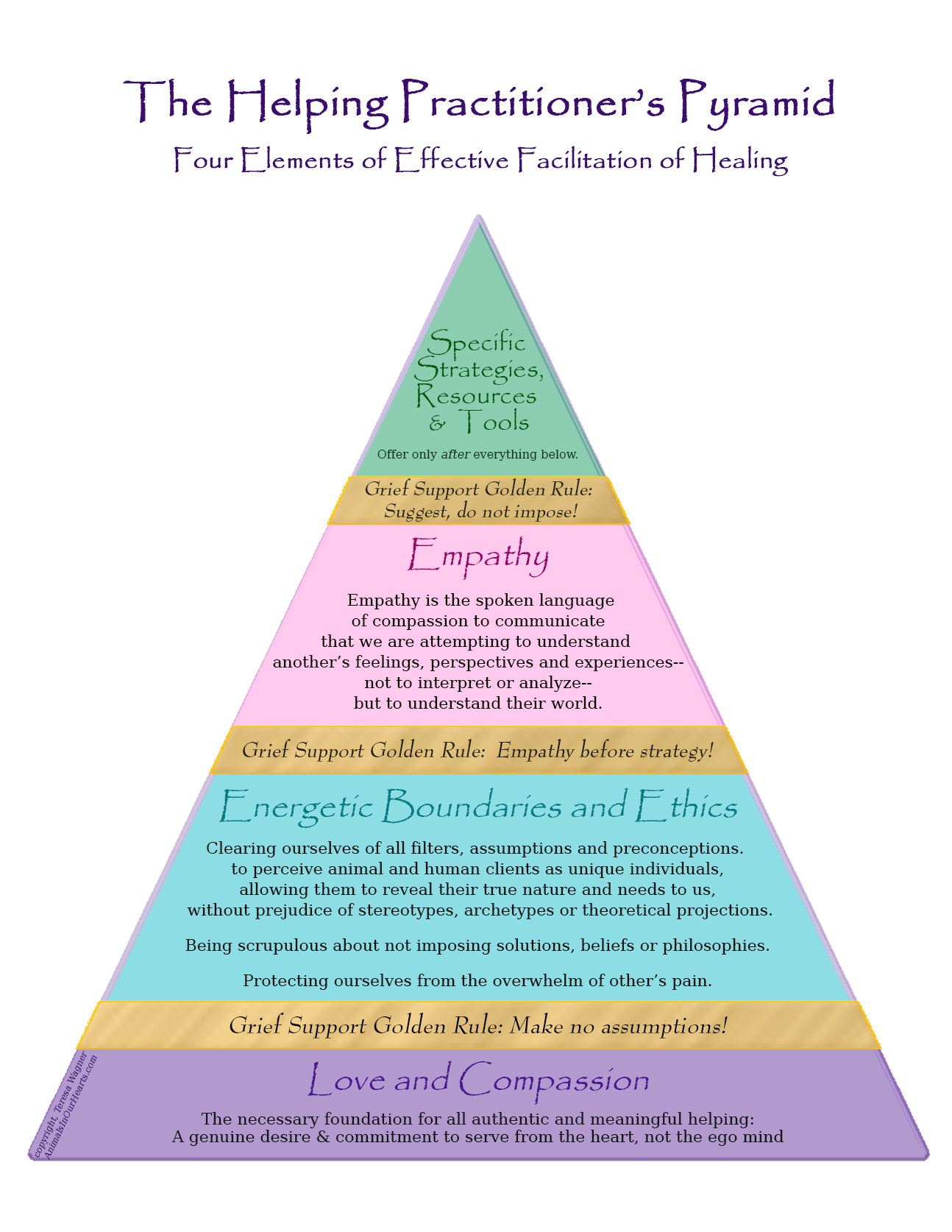
More about the Four Elements of Effective Facilitation of Healing
People often begin offering healing arts and grief support work greatly motivated by love, compassion and a genuine desire to serve. While this is a profoundly important foundation, many bypass the need for energetic boundaries, ethics and empathy to delivering specific healing tools and philosophies without first checking in with the client to learn their real needs. Being unaware of the value and role of energetic boundaries, the ethics that are central to the helping professions, and the fundamental, powerful role of empathy in helping relationships and the skills needed to express it effectively can greatly undermine the effectiveness of the helper and the help given.
Let’s take a look at what can happen when practitioners move immediately from loving compassion to offering strategies and tools to clients without energetic boundaries and empathy.
Without awareness and scrupulous attention to energetic boundaries and ethics,
we are at risk of:
• Projecting our own beliefs, ideas and values onto clients--even unconsciously--and becoming more of an
evangelist who is imposing views rather than being a skilled, effective helper empowering others to heal.
• Filtering our view of our clients’ situations (and thoughts and feelings) through the lens of our personal beliefs and paradigms, preventing us from seeing the client’s perspective because we are viewing/analyzing their situation from only our perspective.
• Burning out if we do not have adequate understanding of or don’t practice taking precautions regarding not taking in the pain and energy of others, and not setting boundaries regarding how we work, when we work and with whom we work.
Without empathy, the strategies, tools and ideas we offer may be:
• Premature if we haven’t taken the time to ask for and listen to our client’s story, thoughts and feelings before suggesting or implementing modalities and tools.
• Irrelevant if not a match to the client’s needs (which happens easily when we don’t ask for and listen to their needs first).
• Inappropriate if not a match to the client’s needs, which we can’t know for sure until we’ve heard and understood their thoughts, feelings and stories.
• Unwanted or a waste of the client’s time, if not matched to their needs which we cannot understand fully without first asking for and thoroughly listening to their stories, thoughts and feelings.
• Irritating to any client who is aware that they have not been listened to and their needs not taken into account before practitioners launch into what they “know” will help them. This can anger those clients with ample strength and self esteem to be offended.
Making premature, irrelevant, inappropriate or unwanted suggestions or comments can retard the healing of vulnerable clients who may become dependent on our views as we impose on them the way we believe they must heal. This is not the job of a helper/healer. It is to empower clients to find and determine their own way with great love, with healthy boundaries, with tremendous empathy and with skill.
Empathy is the bridge to offering strategies and ideas to clients.
Without it, we are leaping blind, guessing (or not caring) what our clients need.
Our expertise in the helping fields in which we have been trained can be priceless in helping others through challenging times. It can also be worthless if our delivery lacks empathy, energetic boundaries and ethics. But when we combine all four elements--love & compassion, energetic boundaries, empathy and the tools in which we’ve been trained--the support we offer others is powerfully whole, relevant and highly empowering to the clients we want to help.
Instructors and Guest Speakers
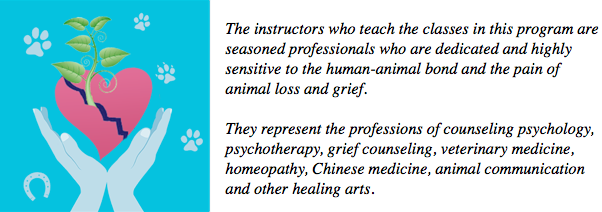
Ruah Bull, M.A., M.Ed, PhD
Linda Epstein, EFT Practitioner
Evelyn Giefer, DVM
Donna Kahora, RN
Stephanie LaFarge, Ph.D.
Laura van Dernoot Lipsky, MSW
Dr. Karen Randall, DVM
Carol Schultz, MBA, LMT
Illana Strubel, MA, DVM, DVSMT, CCRT
Judy Tatelbaum, MSW
Kristin Thompson, Animal Communicator
Enid Traisman, MSW, CT
Teresa Wagner, M.S.
Windi Wodjak, RVT
Ella Woods, MBA, MS, DAOM, LAc, Dipl. OM
Ruah Bull, M.A., M.Ed, Ph.D.
Instructor for: Essential Counseling Skills 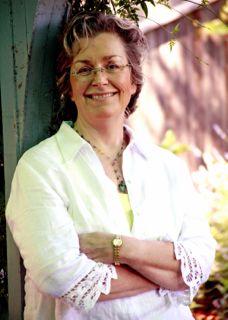 Ruah is a spiritual director, educator and retreat leader who has been working in the healing arts since 1977. She holds an M.A. in Counseling Psychology, M.Ed.in Humanistic Education and Ph.D in Transpersonal Psychology, as well as certificates in hypnotherapy, energy healing, aromatherapy and spiritual direction. Beginning in 1986, she has trained counselors, healers, intuitives and spiritual directors in counseling skills and professional studies, and has offered programs in peer counseling and communication skills in community, church, school and medical clinic settings.
Ruah is a spiritual director, educator and retreat leader who has been working in the healing arts since 1977. She holds an M.A. in Counseling Psychology, M.Ed.in Humanistic Education and Ph.D in Transpersonal Psychology, as well as certificates in hypnotherapy, energy healing, aromatherapy and spiritual direction. Beginning in 1986, she has trained counselors, healers, intuitives and spiritual directors in counseling skills and professional studies, and has offered programs in peer counseling and communication skills in community, church, school and medical clinic settings.
She has co-authored, with Joni Keim, three classics in the subtle aromatherapy field: Aromatherapy and Subtle Energy Techniques; Aromatherapy Anointing Oils and Daily Aromatherapy and continues to cherish an energy connection with the plant/devic realm.
In her private practice as a spiritual director, Ruah works with people on a wide variety of spiritual paths--contemplative Christian to Buddhist to Pagan to 'spiritual but not religious'. She also consults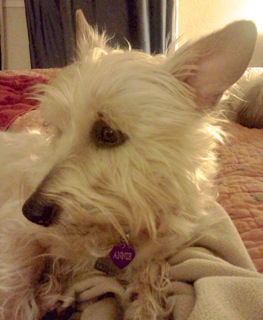 with many healers and practitioners around the psycho-spiritual aspects of professional issues in their practice.
with many healers and practitioners around the psycho-spiritual aspects of professional issues in their practice.
The foundation of her own spirituality is her love of the earth. Ruah's first meditation teacher was her cat, Little Pearl, and her first experience of complete unconditional love was with her beloved little white dog, Molly. Currently Ruah lives with her rescued dog, 2 year old Annie whose gift is playful joy. Her dear terrier, Humphrey, after mastering the spiritual practice of napping, passed away last year just after his 18th birthday.
Ruah can be contacted for spiritual direction sessions at This email address is being protected from spambots. You need JavaScript enabled to view it.
Linda Epstein
Instructor for: EFT, The Emotional Freedom Technique for Illness, End-of-Life Care, Cargiver Stress and Healing Grief
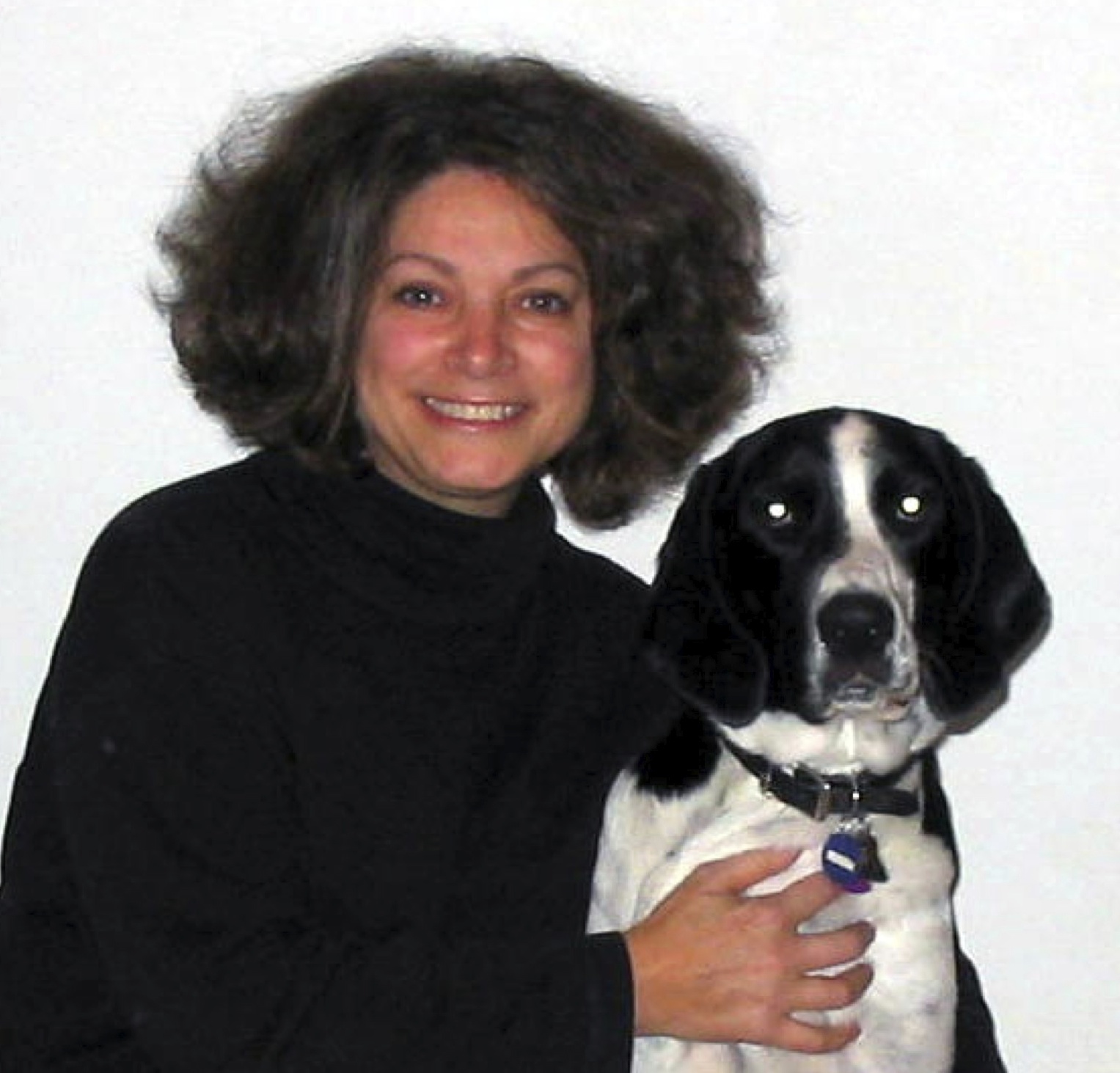 Linda is a practitioner in the Metaphysical Healing Arts for animals, humans and the environment. She has been in private practice since 2003. Her practice encompasses various energetic healing modalities including: Reiki, Quantum Touch, TTouch, Flower and Gem Essence Therapy, and the Emotional Freedom Technique. She is also an Animal Communicator with clients located throughout the United States, Canada, the Far East, and Europe.
Linda is a practitioner in the Metaphysical Healing Arts for animals, humans and the environment. She has been in private practice since 2003. Her practice encompasses various energetic healing modalities including: Reiki, Quantum Touch, TTouch, Flower and Gem Essence Therapy, and the Emotional Freedom Technique. She is also an Animal Communicator with clients located throughout the United States, Canada, the Far East, and Europe.
Linda began her healing practice after the passing of her beloved Rhodesian Ridgeback, Riki. Through him, she embarked on a journey that led to a spiritual awakening. In his honor, she decided to dedicate her life to help bridge the communication gap between animals and their human companions. It was also at this time she found that she had a natural ability to heal energetically.
She studied Animal Communication with Carol Shultz and became a Level One Certified Animal Communication Instructor of Penelope Smith’s Animal Communication Course. She has also taken courses from Nedda Whittels and Lynn McKenzie. Linda studied the Energetic Healing Arts with Reverend Barb Rocha and Mary Baumstart.
Linda served as a Board and Faculty member on Carol Shultz’s Animal Healing & Education Network, a holistic animal care distance education program. Linda developed and taught the Energetic Healing Program which included the following courses: Reiki, levels one through four, the Emotional Freedom Technique, Flower and Gem Essence Therapy, and Color Therapy for animals. She was also an instructor for the Animal Communication Workshops held in Illinois.
Linda offers classes in Reiki, the Emotional Freedom Technique, and Animal Communication as well as private tutoring at several locations in the Lake and McHenry County, Illinois area. She volunteers her services to various rescue groups, helping the animals cope with the stress of abuse, abandonment, and illness.
She lives in Illinois with her husband, two dogs, an African Gray Parrot and a tank full of fish. To contact Linda for a private consultation, workshops, corporate events, and Blessing of the Animals, email: This email address is being protected from spambots. You need JavaScript enabled to view it.. For further information on Linda’s services and products, go to: www.linda-epstein.com
Evelyn Elkin Giefer, DVM
Instructor for: Understanding Pain Management for Chronic Conditions, Serious Illness and Hospice Care 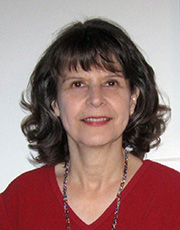 Evelyn Giefer is an animal communicator and holistic veterinarian specializing in energy healing and Classical Homeopathy living in central North Carolina. She has been communicating with animals since 1998 and working as a professional in the field since completing the Animal Spirit Network (ASN) Animal Communication program of study in 2010. She teaches workshops in Reiki and Animal Communication.
Evelyn Giefer is an animal communicator and holistic veterinarian specializing in energy healing and Classical Homeopathy living in central North Carolina. She has been communicating with animals since 1998 and working as a professional in the field since completing the Animal Spirit Network (ASN) Animal Communication program of study in 2010. She teaches workshops in Reiki and Animal Communication.
Grounded in religion and spirituality since childhood, Evelyn became interested in physics and life sciences in college, and followed a career in wildlife biology, biochemistry research, veterinary medicine and drug development. She founded Elkin Communications in 1994 and became a freelance medical writer and consultant. Throughout her career she has maintained a spiritual outlook on healing and a commitment to helping people deal with emotions associated with animal illness, loss and grief. Because of her acceptance of both spiritual and physical reality, the study of the physical basis of energy healing and telepathic communication has been of particular interest to her.
In addition to ASN courses, her post-graduate training includes animal communication and Reiki with Tera Thomas, massage therapy with Sue King, and a Professional Course in Veterinary Homeopathy with Dr. Richard Pitcairn. She established a house call practice in 2008 to offer holistic animal care and training in alternative methods of healing. Finding the optimal balance of conventional medicine, alternative therapies and spiritual healing in her animal patients is the challenge and objective of her holistic practice.
She is a Reiki Master and member of the Academy of Veterinary Homeopathy, the American Holistic Veterinary Medical Association, and the North Carolina Veterinary Medical Association.
Evelyn and her husband El live with a wonderful family of dog, cat, goat and chicken companions in Bahama, NC.
Contact Information: This email address is being protected from spambots. You need JavaScript enabled to view it.
Donna Kahora, RN
Instructor for: Pet Loss Support Groups: Start Up, Structure and Facilitation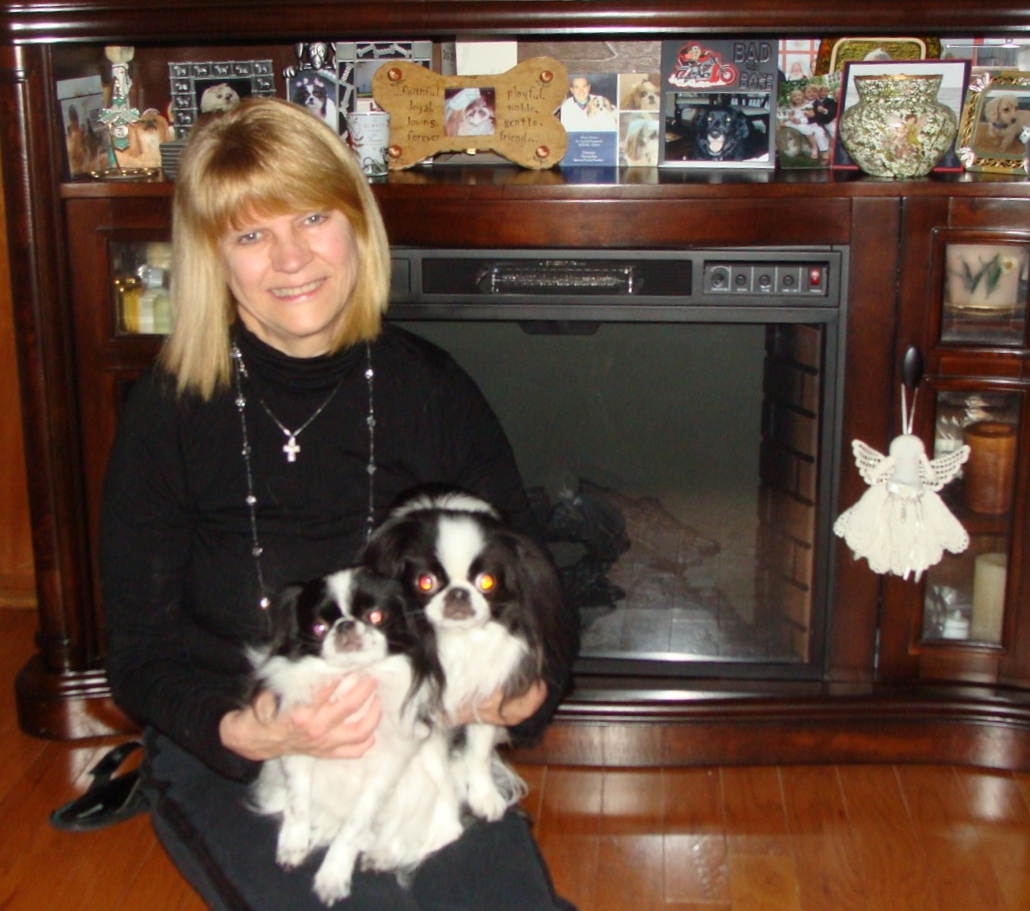 Donna is the founder and sole facilitator of the “Friends of Nikki Support Group,” which was founded in 2001 and is located in Somerset, NJ. With Friends of Nikki, Donna provides a forum for pet parents who may benefit from peer-based support for pet loss at any stage. Donna brings the skills that she has gained from: her 35 years as an RN; the completion of the “Association for Pet Loss and Bereavement Pet Bereavement (APLB) Counselor Training” in 2004 and 2008; and her many years of studying the grief process.
Donna is the founder and sole facilitator of the “Friends of Nikki Support Group,” which was founded in 2001 and is located in Somerset, NJ. With Friends of Nikki, Donna provides a forum for pet parents who may benefit from peer-based support for pet loss at any stage. Donna brings the skills that she has gained from: her 35 years as an RN; the completion of the “Association for Pet Loss and Bereavement Pet Bereavement (APLB) Counselor Training” in 2004 and 2008; and her many years of studying the grief process.
Donna also served on the APLB's planning committee for the 2010 and 2012 conferences.
She is also a member of the “Animal Concerns Ministry” at St Matthias Church in Somerset, NJ.
In May 2012, Donna presented a talk on “Guilt and Pet Loss” at the “Sixth International Conference and Training Workshop on Pet Loss and Bereavement.” In March 2013, Donna participated in the “Doggy Love Day” which was hosted by the “Ordained Vision Ministries” at the New Jersey Performing Arts Center in Newark, NJ. This event sought to help underprivileged children understand pet care and pet loss. Donna spoke about how grief expresses itself in children and ways to cope with the loss of a family pet to some of the attending children and their parents.
In addition to her conference experiences, Donna has been interviewed by New Jersey radio and television shows, including WCTC-NJ and “The Pet Stop” on “News12 NJTV.”
Friends of Nikki hosts monthly meetings which often include workshops and guest speakers, with to help pet parents learn about grief and health and holistic pet care. Through Friends of Nikki, Donna also provides ongoing support and resources to pet parents who seek support between meetings.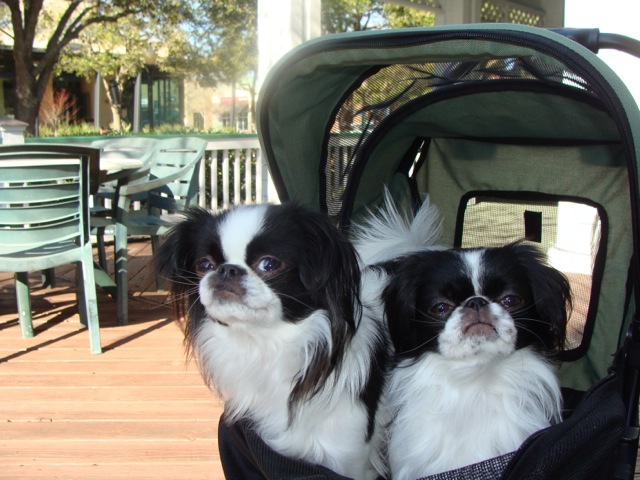 Donna and her husband, Jim, shared a canine family which has crossed to Rainbow Bridge. Their beloved canines included: Ziggy, a Maltese; Nicole (aka Nikki) and Daniel, two Shih Tzus; and Doogie, a Pekingese. In June 2010 and February 2011, respectively, The Kahoras adopted Lilly and Tommy, two delightful Japanese Chin rescues. Lilly and Tommy bring joy to everyday life while Zig, Nik, Dan and Doog watch over the entire Kahora family, making sure that Friends of Nikki continues to help other grieving pet parents. The Friends of Nikki's website includes Donna's original writings about her own animal companions.
Donna and her husband, Jim, shared a canine family which has crossed to Rainbow Bridge. Their beloved canines included: Ziggy, a Maltese; Nicole (aka Nikki) and Daniel, two Shih Tzus; and Doogie, a Pekingese. In June 2010 and February 2011, respectively, The Kahoras adopted Lilly and Tommy, two delightful Japanese Chin rescues. Lilly and Tommy bring joy to everyday life while Zig, Nik, Dan and Doog watch over the entire Kahora family, making sure that Friends of Nikki continues to help other grieving pet parents. The Friends of Nikki's website includes Donna's original writings about her own animal companions.
E-mail address: This email address is being protected from spambots. You need JavaScript enabled to view it.
Website: http://friendsofnikki.memberlodge.com
Stephanie LaFarge, Ph.D.
Instructor for: Understanding Trauma and Post-Traumatic Stress
Stephanie LaFarge is Senior Director of Counseling Services which is part of the ASPCA AntiCruelty Group Forensic Special Projects. She specializes in all aspects of the Human/Animal Bond and works in the ASPCA’s Animal Poison Control Center in Urbana, Illinois.
For 18 years, Dr. LaFarge has provided personalized support to people grieving the loss of their pet via her national 24-hour toll-free Pet Loss Hotline. Dr. LaFarge also assists owners and their children who are distressed by the prospect of the humane euthanasia of their companion animal.
Currently, Dr. LaFarge deploys with the ASPCA Field Investigation and Response Team to natural and man-made disasters such as Joplin, Hurricane Sandy, and large multistate dog fighting cases. Her role is to provide stress reduction and resiliency training for First Responders.
At the ASPCA, Dr. LaFarge developed the organization’s Animal Assisted Therapy program which places registered AAT teams in hospitals, nursing homes, courtrooms and disaster sites. She is a former member of the Board of Trustees of Pet Partners (formerly Delta Society) a leading proponent of the Human/Animal health connection.
During the months that followed the terror attacks of September 11, 2001. Dr. LaFarge facilitated the remarkable contribution of more than 300 therapy dogs and their volunteer handlers. Thousands of hours of compassionate intervention were provided to families and First Responders at Ground Zero.
Dr, LaFarge pioneered the use of an Alternative Sentencing Intervention with persons convicted of animal cruelty and neglect. Working with the ASPCA Cruelty Intervention Advocacy Team, she assists with mitigating the harm done by animal hoarders.
Dr. LaFarge received her doctorate in psychology from Teachers, College, Columbia University for her work with children dying of cancer. She taught at Brown University and was an Assistant Professor of Clinical Psychiatry at The University of Medicine and Dentistry in Newark, NJ where she specialized in the treatment of persons with HIV/AIDS using a harm reduction orientation. Dr. LaFarge’s work with animals includes the surrogate mothering of an infant chimpanzee, Nim Chimpsky, as part of a Columbia University sign language project.
Laura van Dernoot Lipsky, MSW
Guest speaker for: Preventing and Healing Compassion Fatigue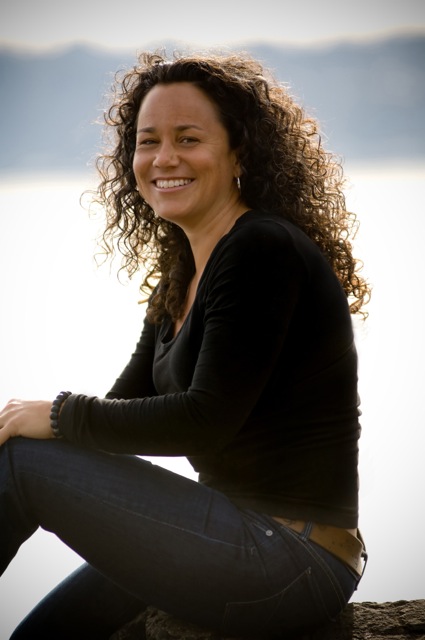
Laura van Dernoot Lipsky, founder and director of The Trauma Stewardship Institute and author of Trauma Stewardship: An Everyday Guide to Caring for Self While Caring for Others, has worked directly with trauma survivors for over three decades. She is recognized as a pioneer in the field of trauma exposure. Her book is unique in that she is one of very few authors in this field who acknowledges the trauma of animals and those who work to help animals and the environment, and discusses oppression as a root cause of trauma.
She has worked with groups as diverse as animal care and
reconstruction workers in post-Hurricane Katrina New Orleans, community organizers and health care providers in Japan, U.S. Air Force pilots, Canadian firefighters, public school teachers, private practice doctors, tiny non-profits, massive state agencies, libraries, the Pentagon, alternative colleges, and Ivy League universities. Much of her work is being invited to assist in the aftermath of community catastrophes whether they are fatal storms or mass shootings. She has worked locally, nationally, and internationally.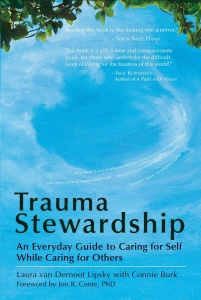
Laura is also an associate producer of the award-winning film A Lot Like You, and was given a Yo! Mama award in recognition of her work as a community-activist mother. She was invited to give a TED talk in March 2015.
Book: http://traumastewardship.com/inside-the-book/
Web site: http://traumastewardship.com/
TED talk http://traumastewardship.com/media/
Dr. Karen Randall, DVM
Instructor for: Animal Hospice from the Perspective of the Veterinarian, the Animals and their People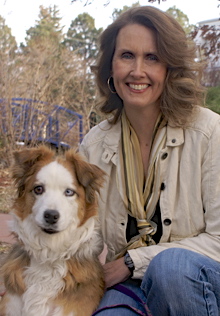 Dr. Karen Randall is a licensed Minnesota veterinarian. She is a graduate of Colorado State University Veterinary School, a member of the American Veterinary Medical Association, the American Association of Human-Animal Bond Veterinarians, and the International Association for Animal Hospice and Palliative Care, where she serves on the Education Committee.
Dr. Karen Randall is a licensed Minnesota veterinarian. She is a graduate of Colorado State University Veterinary School, a member of the American Veterinary Medical Association, the American Association of Human-Animal Bond Veterinarians, and the International Association for Animal Hospice and Palliative Care, where she serves on the Education Committee.
I have been a small animal practitioner and practice owner for over 18 years, first on the beautiful coast of Maine and most recently with a feline specialty practice in Cheyenne, Wyoming. One of the most rewarding aspects of being a veterinarian is becoming part of the unique relationship that people share with their pets. It is truly a privilege. The decision to start an “end of life” practice has been evolving for me over several years. Recently, I found myself faced with the illness and death of several of my own beloved pets over the span of just a few years. My decisions, as a pet owner, were intuitive. I wanted the end of their lives to be comfortable and I wanted them to be home, where they felt safe, with people they loved. As a veterinarian, I was able to assess their condition and administer medications and nursing care as needed. I was practicing home veterinary hospice care on my own pets before I even had a name for it. As their diseases progressed, I was faced with decisions about euthanasia. Although the decision was always difficult, there was ease in knowing that it would take place at home, on a soft bed, surrounded by family. I realized that these are the wishes of many pet guardians. It is my hope that Solace Veterinary Hospice will be able to offer this opportunity to more families in the Twin Cities area.
Contact Information:
Web site: SolaceVeterinaryHospice.com
Phone: (952) 920-9200
Carol Schultz, MBA, LMT, Founder of the Animal Spirit Healing and Education Network
Instructor for: Animal Hospice from the Perspective of the Veterinarian, the Animals and their People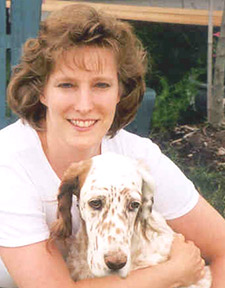 Carol Schultz has been a professional Animal Communicator since 2000. Her chosen path to assist animals and their people was greatly inspired by her feline friend, Panda, a graceful, wise, and playful companion. Although Panda has since passed into spirit, Carol’s healing journey with animals continues to evolve.
Carol Schultz has been a professional Animal Communicator since 2000. Her chosen path to assist animals and their people was greatly inspired by her feline friend, Panda, a graceful, wise, and playful companion. Although Panda has since passed into spirit, Carol’s healing journey with animals continues to evolve.
Carol's path in animal wellness has included the training and application of various intuitive healing support modalities, and a committed focus on client grief support. As Carol’s personal understanding of the interconnectivity between humans and their companion animals has expanded, she has begun to see the process of inter-species healing and communication in a different light. As a way to more deeply understand the human side of this connection, Carol embarked upon the study of Massage, Craniosacral Therapy and the effects of trauma, and now incorporates this further learning into her work with people and their animals. Private practice animal communication consultations with Carol support all concerns, including behavior, performance, health, life changes, end of life, in-spirit, and lost animals.
She has studied with Penelope Smith, an internationally known pioneer in this field, Teresa Wagner, a trusted guide in animal loss & grief support concerns, Dr. Nancy Soliven, a leading professional in the field of craniosacral therapy and emotional release, and with many others both locally and nationally. Carol is a graduate of the Interspecies Life Awareness Coach training program with the Institute of Integrated Sciences, founded by Mary Ann Simonds, a Human/Animal Life Awareness Coach.
In 2006, Carol founded Animal Spirit Healing & Education® Network, a collaborative educational community which continues to enhance the lives of animal companions and their humans through on-site courses, teleclasses, and online learning opportunities.
Carol Schultz is a University of Illinois graduate, received her MBA from the Lake Forest Graduate School of Business, and was a logistics manager in the food industry prior to transitioning into the field of Animal Communication. She resides with her family in her hometown of Pekin, IL.
She can be reached at: This email address is being protected from spambots. You need JavaScript enabled to view it. CarolSchultz.com (815) 531-2850
Available for private consultations
Illana Strubel, MA, DVM, DVSMT, CCRT
Instructor for: Understanding Pain Management for Chronic Conditions, Serious Illness and Hospice Care
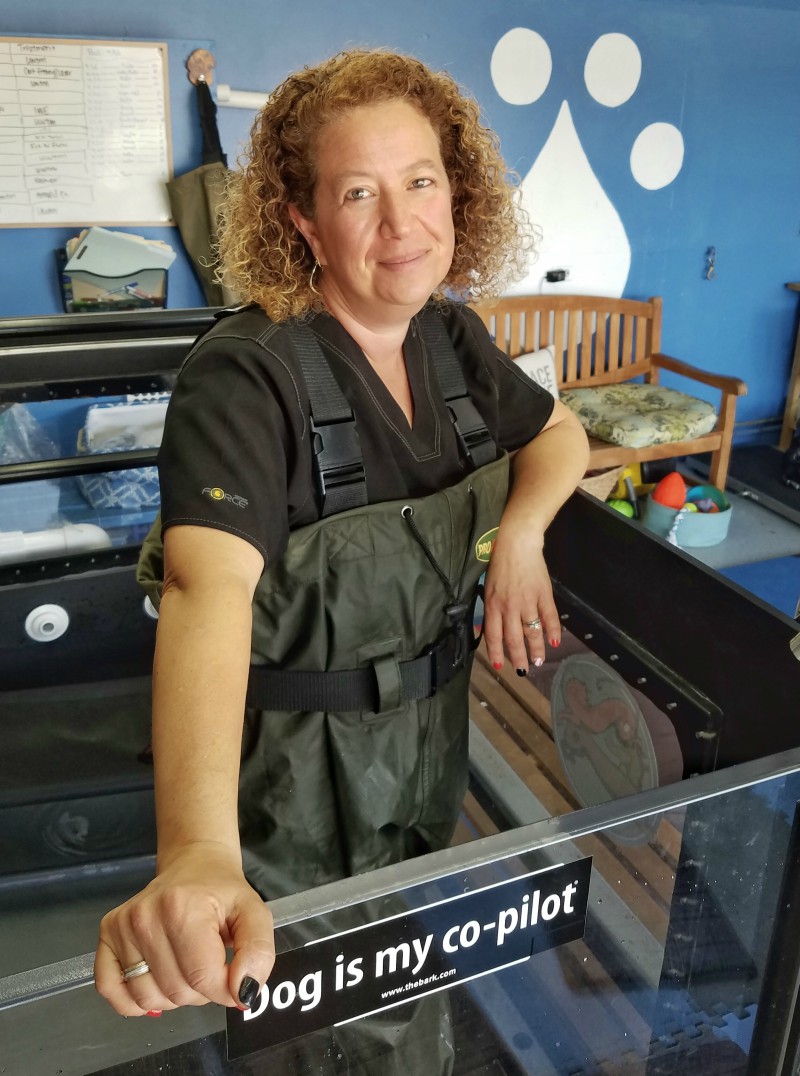 Dr. Ilana Strubel earned her Doctorate of Veterinary Medicine at the University of Illinois and has been in small animal veterinary practice since 1995, always with a special interest in Integrative Medicine – treating her patients’ entire well-being: body, mind, and quality of life – especially tackling behavior problems, pain management, and mobility issues. She completed the Donald G. Low-CVMA Practitioner Fellowship with the UC Davis Veterinary Teaching Hospital’s Behavior Service in 2005, and became a member of the American Veterinary Society of Animal Behavior (AVSAB).
Dr. Ilana Strubel earned her Doctorate of Veterinary Medicine at the University of Illinois and has been in small animal veterinary practice since 1995, always with a special interest in Integrative Medicine – treating her patients’ entire well-being: body, mind, and quality of life – especially tackling behavior problems, pain management, and mobility issues. She completed the Donald G. Low-CVMA Practitioner Fellowship with the UC Davis Veterinary Teaching Hospital’s Behavior Service in 2005, and became a member of the American Veterinary Society of Animal Behavior (AVSAB).
In 2011, Dr. Ilana completed training in Veterinary Spinal Manipulation Therapy (VSMT/Chiropractic), at the Healing Oasis Wellness Center focusing on both functional neurology and chiropractic adjustments, and became a certified member of the College of Animal Chiropractors; she was also certified in Animal Acupressure through the Tallgrass Animal Acupressure Institute in 2012.
In 2014 she became a Certified Canine Rehabilitation Therapist (CCRT) through Canine Rehabilitation Institute, with additional training in Sports Medicine and Conditioning, Geriatric Patient Rehabilitation, Nutrition, and Veterinary Orthotics and Prosthetics. Dr. Ilana is a member of the Association of Animal Rehabilitation Veterinarians (AARV).
In addition to an unshakable commitment to her own patients and practice, Dr. Ilana is passionate about volunteering with and supporting a number of important local community organizations. She currently serves on the board of Paw Fund - assisting with free vaccination, spay/neuter, and animal rescue and adoption for low-income pet owners in the East San Francisco Bay Area, and is credited for being the founder of Veterinary Street Outreach Services (VET SOS) where she volunteered as Project Coordinator for 12 years providing high quality, free veterinary care to the pets of San Francisco’s homeless community. Dr. Ilana has also served on the board of Pets Are Wonderful Support (PAWS-SF), San Francisco Aid for Animals (SFAFA), and Rocket Dog Rescue. Out of love and adoration for disabled, senior pups, Dr. Ilana currently volunteers with the veterinary department of Muttville Senior Dog Rescue, offering unique support to geriatric dogs with pain and mobility deficits.
Web site: http://www.awelladjustedpet.com/
Judy Tatelbaum, MSW, Licensed Clinical Social Worker
Instructor for:
Dealing with Grief During Holidays & Anniversaries When You've Lost An Animal Loved One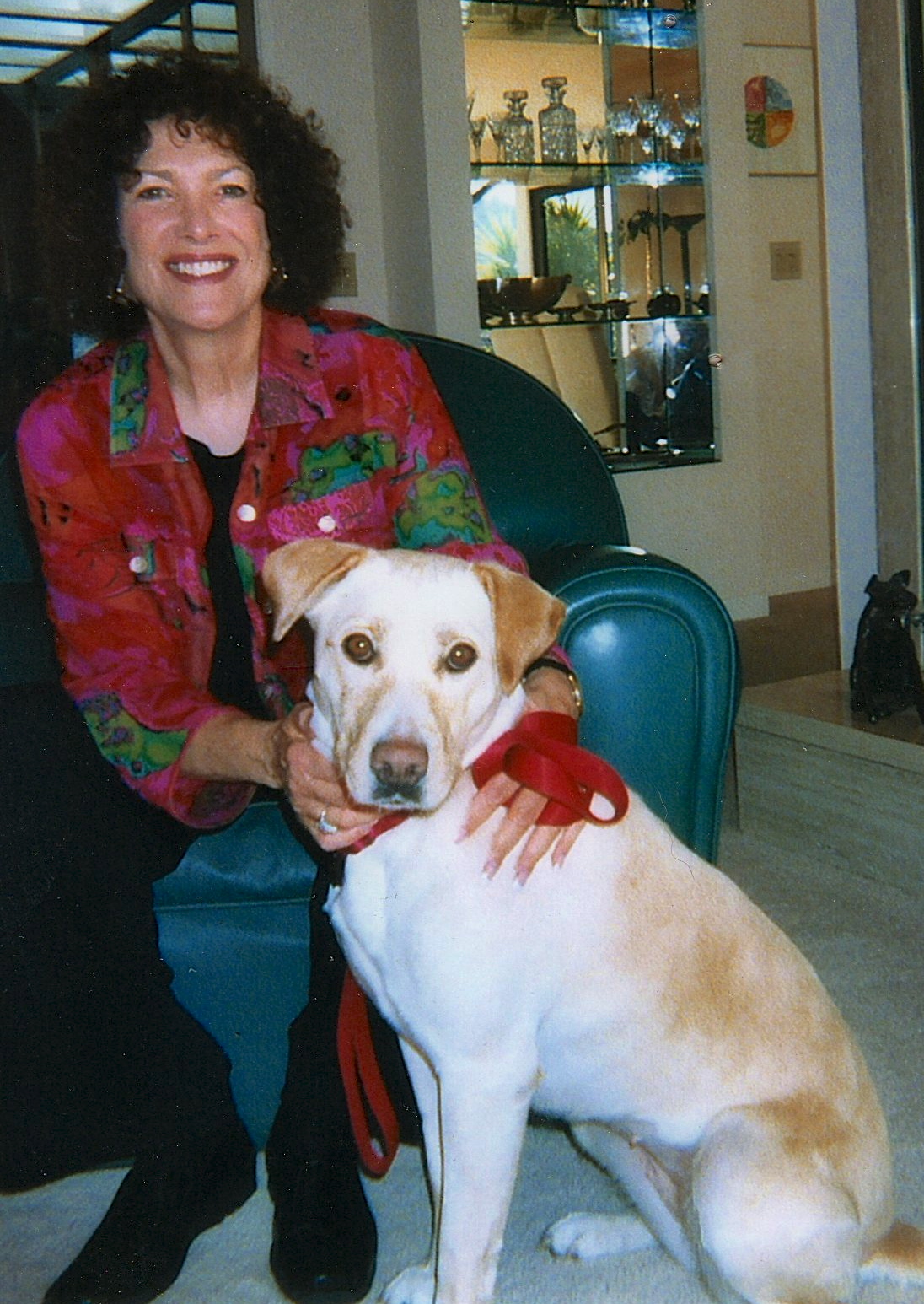 Judy is a psychotherapist, an inspirational and popular keynote speaker, workshop leader, and professional trainer. She grew up in Rochester, New York, and is a graduate of Syracuse University and Simmons College, School of Social work. She worked at Massachusetts Mental Health Center, Boston, and Payne Whitney Clinic of the New York Cornell Medical Center in New York City before starting her private practice in California. She now lives in Carmel Valley, California, with her husband, Allan Marcus, and her dog, Honey.
Judy is a psychotherapist, an inspirational and popular keynote speaker, workshop leader, and professional trainer. She grew up in Rochester, New York, and is a graduate of Syracuse University and Simmons College, School of Social work. She worked at Massachusetts Mental Health Center, Boston, and Payne Whitney Clinic of the New York Cornell Medical Center in New York City before starting her private practice in California. She now lives in Carmel Valley, California, with her husband, Allan Marcus, and her dog, Honey.
She is the author of the best selling books, The Courage to Grieve and You Don't Have to Suffer. A foremost authority on overcoming grief and emotional suffering, Judy encourages people to face and recover from life's inevitable crises courageously. She has many years experience working with individuals in therapy facing issues of grief, loss and and life transitions. A pet lover and owner, she also works with issue related to pet health concerns and pet loss. She works extensively with mental health professionals, hospitals, hospices, bereavement groups, funeral directors, and AIDS programs.
Judy appears on television and radio, and lectures across the country. She recently produced the award winning DVD The Courage to Grieve, The Courage to Grow and audio tapes, The Caregiver Series: Caring for the Caregiver, Enhancing Self Esteem, The Power of Saying Good-bye, and The Special Grief of HIV and AIDS. Her most recent book is The Journey From the Land of Forever Flowers, A Fable About Afterlife which are all available from her web site.
She can be reached at This email address is being protected from spambots. You need JavaScript enabled to view it. and www.judytatelbaum.com and is available for private consultations.
Kristin Hadley Thompson, Animal Communicator
Instructor for:
Animal Hospice from the Perspective of the Veterinarian, the Animals and their People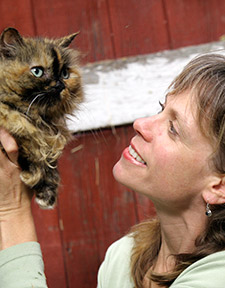 Kristin Thompson is an Animal Communicator, Interspecies Life Awareness Coach™, and Teacher. She has a full time private practice working with human and animal clients locally and throughout the country, offering animal communication consultations, courses, and specialized coaching for people through connection with animals and nature. As part of her practice, Kristin teaches courses in Animal Communication (Basic through Advanced Levels), Animal Communication for Kids, Reiki for Animals, Loss of an Animal, and other animal/nature related classes.
Kristin Thompson is an Animal Communicator, Interspecies Life Awareness Coach™, and Teacher. She has a full time private practice working with human and animal clients locally and throughout the country, offering animal communication consultations, courses, and specialized coaching for people through connection with animals and nature. As part of her practice, Kristin teaches courses in Animal Communication (Basic through Advanced Levels), Animal Communication for Kids, Reiki for Animals, Loss of an Animal, and other animal/nature related classes.
She finds her work most satisfying while facilitating courses, private consultations, coaching, and mentoring, helping to bring people to an understanding of animals and themselves as unique and whole spiritual beings in this journey of life.
Kristin lives with her husband, children, and animal family (horses, cats, dogs, and goats) on a sacred farm in Western New York State.
This email address is being protected from spambots. You need JavaScript enabled to view it. CommunicateWithAnimals.com
(716) 778-6233 Available for private consultations
Enid Traisman, MSW, CT, CFS
Instructor for: Pet Loss Support Groups: Start Up, Structure and Facilitation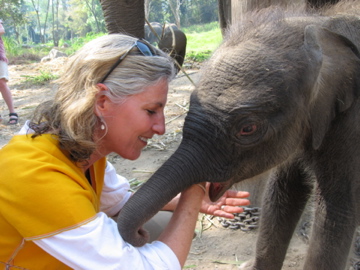 Enid received her B.A. Degree from the University of Kansas in l980. In 1986 Enid completed her Masters in Social Work from Portland State University, specializing in Grief Counseling.
Enid received her B.A. Degree from the University of Kansas in l980. In 1986 Enid completed her Masters in Social Work from Portland State University, specializing in Grief Counseling.
In 1989 Enid became a Certified Thanatologist through the Association for Death Education and Counseling. In 2004 earned her certificate as a Compassion Fatigue Specialist through Humane Society University.
Enid is the author of five published books. Four are for human loss published by the Centering Corporation in Omaha, Nebraska. Enid's fifth book is a guided remembrance journal especially designed to support and help bereaved pet owners navigate life without their beloved pets: My Personal Pet Remembrance Journal.
In October of 1986 Enid founded and continues as the director of the DoveLewis Pet Loss Support and Memorial Art Therapy Program. Enid facilitates the four support groups each month, provides art therapy for the community and DoveLewis staff each month. Enid presents workshops to the staff at DoveLewis and veterinary clinics and conferences around the country about pet bereavement, compassion fatigue and the human-animal companion bond.
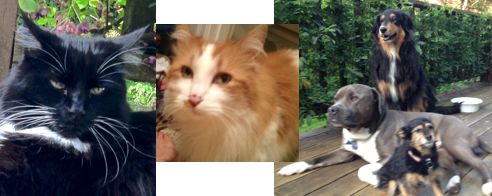
Enid's Animal Family ~
Blog http://www.dovelewis.org/pet-loss-blog/
Etsy shop https://www.etsy.com/shop/enidtraisman
Book Pet Remembrance Journal
Fused Glass Cremated Remains Keepsakes
Article about Enid's work in Spot Magazine
Note about elephant photo: Enid visits with a baby elephant at the Patara Elephant Sanctuary in Thailand (a rescue facility, not a captive entertainment venue)
Windi Wojdak, RVT
Instructor for: Understanding and Preparing for Euthanasia Windi is a Registered Veterinary Technician with more than fifteen years experience in veterinary medicine and animal welfare. Before finding her passion in animal protection and advocacy, Windi received an undergraduate degree in psychology and worked for several years as a crisis intervention counselor. She found her calling in a small Midwestern animal shelter where she managed operations for several years before moving to California and continuing her work in animal protection.
Windi is a Registered Veterinary Technician with more than fifteen years experience in veterinary medicine and animal welfare. Before finding her passion in animal protection and advocacy, Windi received an undergraduate degree in psychology and worked for several years as a crisis intervention counselor. She found her calling in a small Midwestern animal shelter where she managed operations for several years before moving to California and continuing her work in animal protection.
Since becoming a licensed veterinary technician in 2000, she has worked to develop bridges between the veterinary and animal protection communities. She has taught various aspects of animal care and medicine to animal shelter staff and volunteers as well as veterinary students and professionals. She is currently the director of a national non-profit veterinary outreach program combining community service and veterinary education to bring free veterinary services to under-served rural communities throughout the world.
Windi's professional interests include shelter and field medicine, companion animal anesthesia and pain management, euthanasia and end of life care. Windi has dedicated most of her life’s work to animal protection and advocacy and is continually in awe of the resiliency of spirit of those who suffer and those who strive to relieve suffering. She sees the act of euthanasia as a sacred responsibility and finds deep meaning in guiding animals and their human guardians through this important time.
Teresa Wagner, MS
Founder, Pet Loss and Grief Counseling Training and Certification Program
Instructor for several classes in the program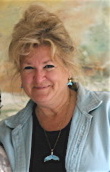 Teresa has loved and communicated with animals all of her life. It is being with animals that brings her to the core of her soul while here on earth. Animals and helping animals and the people who love them provide the meaning, guidance, joy, and purpose in her life. Because losing her own animals has brought her both acute emotional pain and lasting spiritual growth, she decided long ago to devote much of her work to helping others find the growth and gifts that the grief healing process can bring.
Teresa has loved and communicated with animals all of her life. It is being with animals that brings her to the core of her soul while here on earth. Animals and helping animals and the people who love them provide the meaning, guidance, joy, and purpose in her life. Because losing her own animals has brought her both acute emotional pain and lasting spiritual growth, she decided long ago to devote much of her work to helping others find the growth and gifts that the grief healing process can bring.
She held her first pet loss workshop in 1986 and has had a private animal communication and grief counseling practice since 1991 and she has worked with over 10,000 clients in over 21 countries. She is the author of the audio book Legacies of Love, A Gentle Guide to Healing from the loss of Your Animal Loved One and has created several other pet loss grief support products.
Teresa’s entry into the fields of grief recovery and traumatic stress began when she experienced her first the loss of an animal, as an adult, in 1985. Rocked by her grief and unable to come to terms with it, she sought therapy and began a rigorous review of the grief literature. Later she studied with Stephen Levine, Elizabeth Kubler Ross and John James of the Grief Recovery Institute.
Over time, these sources helped her heal and understand the grief recovery process. This motivated her to design and offer grief workshops to help others through this disenfranchised loss. Teresa has worked with thousands of grieving humans, individually, in workshops, and in bereavement support groups. In a year long consulting project with a hospice, she conducted research to identify the competencies needed for effective grief support, resulting in the Grief Support Competencies Profile. In conjunction with FES (Flower Essence Society) Teresa developed a flower essence formula, The Animal Relief Formula, to address the issues unique to the traumatic stress of animals. She is a member of the Association of Death Education and Counseling and has presented at their international conference.
From 1999-2015 she facilitated whale swim trips to bring whales and people together in sacred communication and love. She also works with captive and entangled whales to help them with the emotional and physical stress and trauma inherent in these situations. Teresa is passionately concerned about the U.S. pet overpopulation epidemic, the trauma this creates for the animals, and the grief and compassion fatigue experienced by shelter and rescue employees as well. For eight years she provided compassion fatigue workshops to shelters throughout the U.S. She founded the Animal Loss and Grief Support Professional Program of Study, originally under the aegis of the Animal Spirit Network, in 2007.
Teresa earned a master's degree in counseling from Villanova University and an undergraduate degree in psychology and criminal justice from Alvernia College, where she graduated with honors. She also completed post graduate work at Columbia University, with Carl Rogers at the University of Nottingham, England, and completed the Clinical Training Program in Post Traumatic Stress Disorder at the National Center for PTSD, Dept. of Veterans Affairs. She studied animal communication with Jeri Ryan, her beloved and respected teacher and mentor who founded the Assisi International Animal Institute.
In the 1980's, Teresa held a series of management positions with RCA, heading training and organization development departments in New York City and New Jersey. In the late 1970's she was a counselor and trainer for the National Training Institute of the Juvenile Justice Center in Philadelphia.
She has been named to Who's Who of American Women, Outstanding Young Women of America, is the recipient of the RCA President's Award, and an American Society of Training and Development Award for Outstanding Contribution. She has also received the Gwendolyn May Award for Humanitarian Work Extending Beyond Monterey County by the SPCA of Monterey County, CA.
She has been a regularly invited speaker to national conferences for organizations such as The Humane Society of the United States and the Association of Death Education and Counseling. She has served on the faculty for The American Humane Association and on the boards of Horse Power International, The Assisi International Animal Institute, and is Past President of the Wildlife Auxiliary of The SPCA of Monterey County in California.
Teresa lives in Carmel, California and considers herself deeply blessed to live so close to the Pacific Ocean and all the beings living in it.
"Though I consider all of the animals of the earth my family and my reason for being, cats and humpback whales are my personal animal family and my guiding light. To me they are the most wondrous and magnificent beings on earth. The mere site of them of hearing their purrs or songs both calms and stirs my soul."
www.animalsinourhearts.com
This email address is being protected from spambots. You need JavaScript enabled to view it.
Ella Woods, DAOM, MSTCM, MBA, Dipl. OM
Instructor for Understanding Pain Management for Chronic Conditions, Serious Illness and Hospice Care 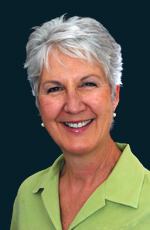 Dr. Woods is a specialist in integrating holistic medicine, especially Traditional Chinese Medicine (TCM), which includes acupuncture, Chinese medicinal herbs, Tui Na, and other TCM derivatives, into treatment plans that complement any western (allopathic) medicine being used. She is trained in using TCM for animal patients as well as human patients. And because of her extensive background in public health and human allopathic medicine she collaborates with DVMs and MDs intelligently and effectively.
Dr. Woods is a specialist in integrating holistic medicine, especially Traditional Chinese Medicine (TCM), which includes acupuncture, Chinese medicinal herbs, Tui Na, and other TCM derivatives, into treatment plans that complement any western (allopathic) medicine being used. She is trained in using TCM for animal patients as well as human patients. And because of her extensive background in public health and human allopathic medicine she collaborates with DVMs and MDs intelligently and effectively.
Often her canine and feline patients have serious, complicated diseases, sometimes labeled “terminal” by their Veterinarian. Dr. Wood's care focuses on today and the current barriers to balance and well-being. She cares not for “prognosis” or predicted outcome. She cares about fine-tuning the body’s energy to allow it to bring its life force to bear on the imbalance (disease). She finds that each body has it’s own unique wisdom and will often use her therapies to heal/repair whichever system truly needs it first. Her clients find that their beloved companion is more active, more comfortable, feels better for much longer than without the therapies Dr. Woods uses. Dr. Woods finds that her patients tend to experience a higher state of well-being until their body is truly ready to release their spirit.
Her training in using customized herbal formulas to obtain this heightened state of well-being has underwritten skills and knowledge that set her apart from other holistic clinicians. All of her 7.5 years of formal training, including earning a Master’s degree in Traditional Chinese Medicine (MSTCM), a Doctorate in Acupuncture and Oriental Medicine (DAOM), and a Diplomate in Oriental Medicine (Dipl. OM) included in-depth training in the effective combination of herbs, especially Chinese herbs. And her residency at Yue Yang Hospital in Shanghai, China provided in-depth experience in it’s clinical application and research.
Dr. Woods began her career as an entomologist, studying mosquito-borne diseases including viral encephalitis and malaria in Florida. Later she studied natural population control of the common cockroach using growth-inhibiting pheromones.
After earning her MBA in night and weekend classes at San Francisco State University, Dr. Woods shifted to a career negotiating contracts for sponsored research and collaborative research for such entities as biotech companies, NASA, the U.S. Department of Energy and the University of California.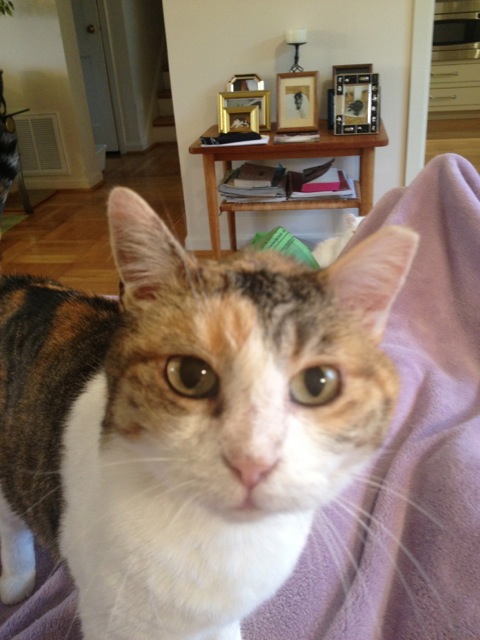 It was while working for a major biotech company that her passion for animals was re-ignited. Employees were free-feeding a large number of feral cats that lived on the property. But no one was getting them spayed. This was at a time when “trap-test-vaccinate-neuter-&-return” was not a commonly-known concept. As she watched kittens born into this difficult life and grow up without real shelter from the elements and without any form of help when they fell ill, she knew something had to be done.
It was while working for a major biotech company that her passion for animals was re-ignited. Employees were free-feeding a large number of feral cats that lived on the property. But no one was getting them spayed. This was at a time when “trap-test-vaccinate-neuter-&-return” was not a commonly-known concept. As she watched kittens born into this difficult life and grow up without real shelter from the elements and without any form of help when they fell ill, she knew something had to be done.
She spoke with the local Humane Society and found that they had recently received a rather large gift from a donor that was earmarked for the care of feral cats. They were looking for a way to use it. Her negotiation skills came into play as she forged an agreement with the Humane Society and then negotiated with corporate executives to get a three-party agreement, signed and legally effective. The humane society agreed to test, vaccinate and neuter all cats and kittens trapped on the property, at no cost. The employees agreed to trap all feral cats on the property, with special focus on socializing all kittens and socializable and dumped-socialized adults and finding adoptive homes, thus returning to the colony only those cats who could not be socialized. The employee-volunteers agreed to keep statistics on the numbers of cats caught, socialized and placed, released back to the colony, etc. And the company agreed to allow the program on-site, to notify the employee-volunteers if cats/kittens were found in a sensitive location, if a new-to-the-site cat was spotted, and to not at any point destroy the cats.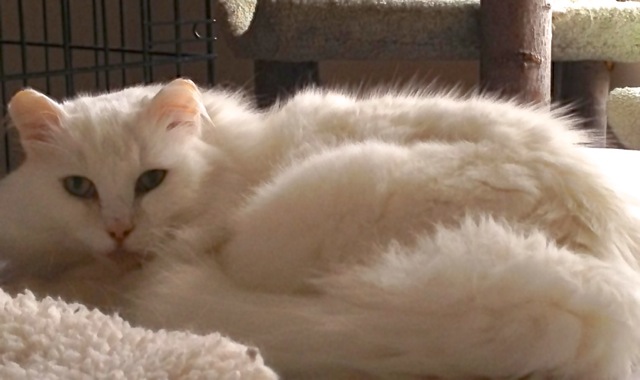 This employee-volunteer group, decades old now, still exists. They can demonstrate using their data that simply by neutering the cats and then keeping them well-fed, by removing and finding homes for all those who can be socialized, that they have reduced the numbers of feral cats on the property to one-third the original population. They have helped to create a smaller, stable, healthy colony of cats who protect their turf, keeping interlopers out thus preventing colony growth.
This employee-volunteer group, decades old now, still exists. They can demonstrate using their data that simply by neutering the cats and then keeping them well-fed, by removing and finding homes for all those who can be socialized, that they have reduced the numbers of feral cats on the property to one-third the original population. They have helped to create a smaller, stable, healthy colony of cats who protect their turf, keeping interlopers out thus preventing colony growth.
Dr. Woods says that this is still one of the most important things she has done in her life. And she is extremely proud of and honored by the continued dedication and passion of the ever-changing and growing fleet of employee-volunteers.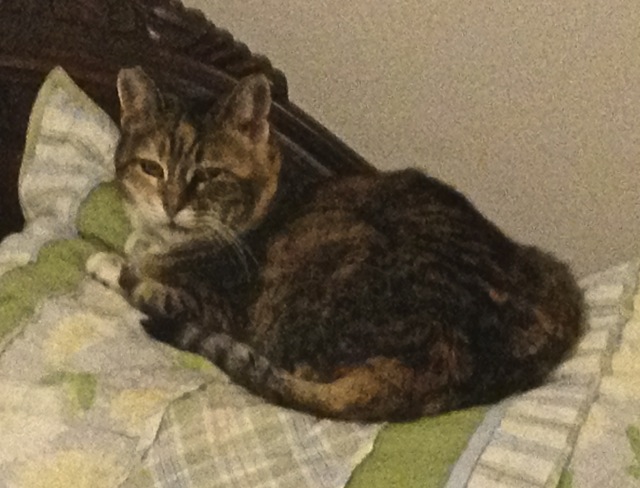 Dr. Woods as been care-giver to over 10 cats in her adult life, all of them former strays or ferals. She has been foster to many more cats, before they found their forever homes. And she has been god-mother to two dogs. She now has three cats in her care. So she has dealt with end-of-life care and concerns with her own companion animals, as she has done in her professional life. She brings dignity and compassion to the situation. She brings a gentle medicine that considers the whole patient and seeks the best balance possible, which translates to greater comfort, and often longer and more comfortable survival times.
Dr. Woods as been care-giver to over 10 cats in her adult life, all of them former strays or ferals. She has been foster to many more cats, before they found their forever homes. And she has been god-mother to two dogs. She now has three cats in her care. So she has dealt with end-of-life care and concerns with her own companion animals, as she has done in her professional life. She brings dignity and compassion to the situation. She brings a gentle medicine that considers the whole patient and seeks the best balance possible, which translates to greater comfort, and often longer and more comfortable survival times.
Her fondest hope is that someday Traditional Chinese Medicine will be seen for its preventative medicine capabilities. When this is the case, people will think of it at the first sign of imbalance, such as when they or their companion animal have a sensitive stomach, or are prone to being grumpy and irritable. They will think of it when they have a feeling that their beloved companion seems “off”, but all their exams and lab tests are “normal”. Currently, it is more likely to be thought of after all else has been tried and failed. Certainly, at this time it can be very helpful in increasing the comfort and well-being of the patient. But it is her hope that someday, we will turn to it far earlier and use it to prevent the disease or greatly delay its onset.

